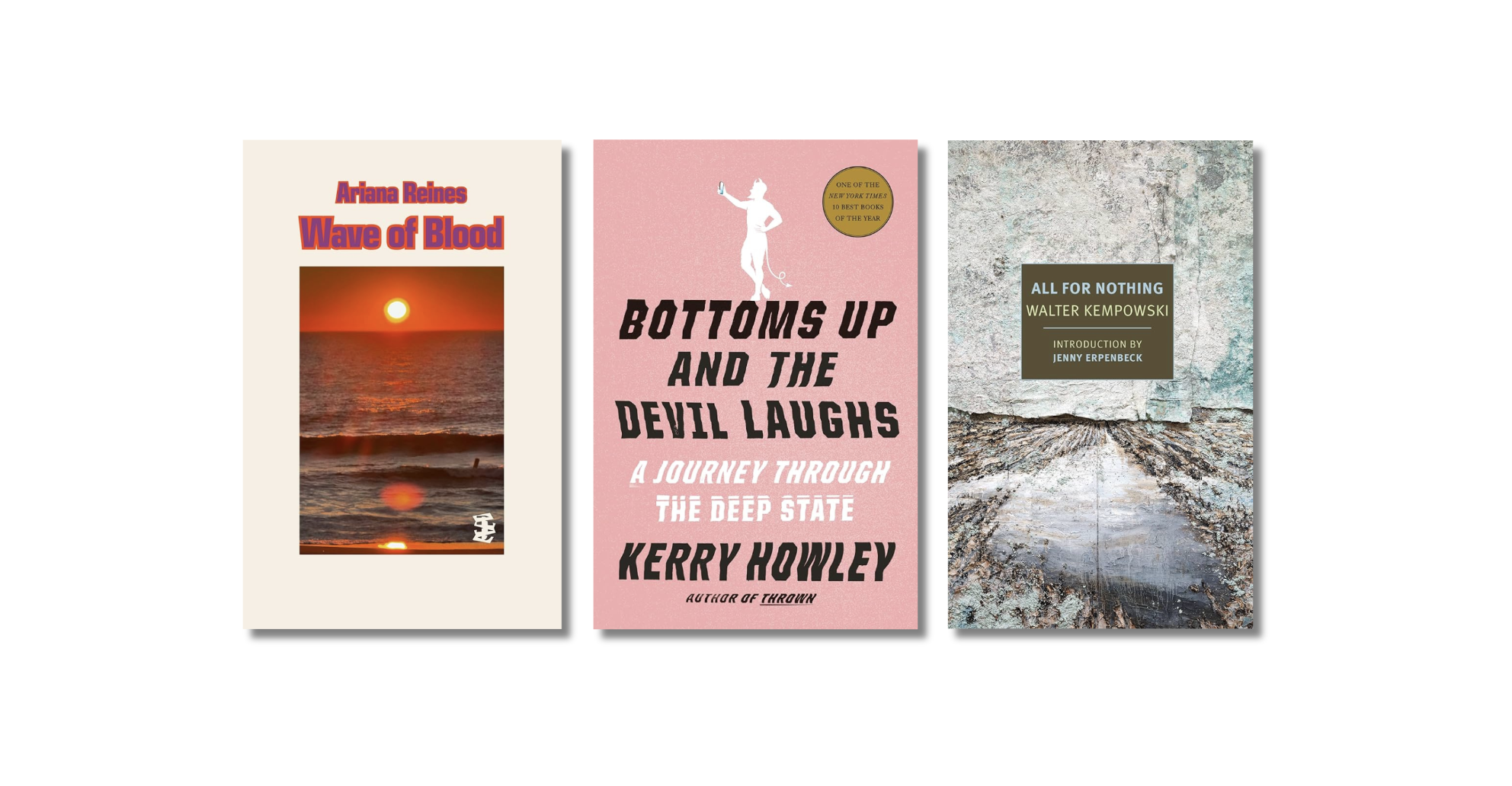Settle in, folks, because this is one the longest first-half previews we’ve run in a long while. Putting this together is a labor of love, and while a huge crop of great spring books increases the labor, it also means there is more here for readers to love. We’d never claim to be comprehensive—we know there are far more excellent books on the horizon than one list can hold, which is why we’ve started doing monthly previews in addition to the semi-annual lists (and look out for the January Poetry Preview, which drops tomorrow). But we feel confident we’ve put together a fantastic selection of (almost 100!) works of fiction, memoir, and essay to enliven your January through June 2018. What’s in here? New fiction by giants like Michael Ondaatje, Helen DeWitt, Lynne Tillman, and John Edgar Wideman. Essays from Zadie Smith, Marilynne Robinson, and Leslie Jamison. Exciting debuts from Nafkote Tamirat, Tommy Orange, and Lillian Li. Thrilling translated work from Leïla Slimani and Clarice Lispector. A new Rachel Kushner. A new Rachel Cusk. The last Denis Johnson. The last William Trevor. The long-awaited Vikram Seth.
As Millions founder and publisher C. Max Magee wrote recently, you can help ensure that these previews, and all our great books coverage, continue for years to come by lending your support to the site as a member. The Millions has been running for nearly 15 years on a wing and a prayer, and we’re incredibly grateful for the love of our recurring readers and current members who help us sustain the work that we do.
So don your specs, clear off your TBR surfaces, and prepare for a year that, if nothing else, will be full of good books.
JANUARY
 The Perfect Nanny by Leïla Slimani (translated by Sam Taylor): In her Goncourt Prize-winning novel, Slimani gets the bad news out of the way early—on the first page to be exact: “The baby is dead. It only took a few seconds. The doctor said he didn’t suffer. The broken body, surrounded by toys, was put inside a gray bag, which they zipped up.” Translated from the French by Sam Taylor as The Perfect Nanny—the original title was Chanson Douce, or Lullaby—this taut story about an upper-class couple and the woman they hire to watch their child tells of good help gone bad. (Matt)
The Perfect Nanny by Leïla Slimani (translated by Sam Taylor): In her Goncourt Prize-winning novel, Slimani gets the bad news out of the way early—on the first page to be exact: “The baby is dead. It only took a few seconds. The doctor said he didn’t suffer. The broken body, surrounded by toys, was put inside a gray bag, which they zipped up.” Translated from the French by Sam Taylor as The Perfect Nanny—the original title was Chanson Douce, or Lullaby—this taut story about an upper-class couple and the woman they hire to watch their child tells of good help gone bad. (Matt)
 Halsey Street by Naima Coster: Coster’s debut novel is set in Bedford-Stuyvesant, a rapidly gentrifying corner of Brooklyn. When Penelope Grand leaves a failed art career in Pittsburgh and comes home to Brooklyn to look after her father, she finds her old neighborhood changed beyond recognition. The narrative shifts between Penelope and her mother, Mirella, who abandoned the family to move to the Dominican Republic and longs for reconciliation. A meditation on family, love, gentrification, and home. (Emily)
Halsey Street by Naima Coster: Coster’s debut novel is set in Bedford-Stuyvesant, a rapidly gentrifying corner of Brooklyn. When Penelope Grand leaves a failed art career in Pittsburgh and comes home to Brooklyn to look after her father, she finds her old neighborhood changed beyond recognition. The narrative shifts between Penelope and her mother, Mirella, who abandoned the family to move to the Dominican Republic and longs for reconciliation. A meditation on family, love, gentrification, and home. (Emily)
 Fire Sermon by Jamie Quatro: Five years after her story collection, I Want to Show You More, drew raves from The New Yorker’s James Wood and Dwight Garner at The New York Times, Quatro delivers her debut novel, which follows a married woman’s struggle to reconcile a passionate affair with her fierce attachment to her husband and two children. “It’s among the most beautiful books I’ve ever read about longing—for beauty, for sex, for God, for a coherent life,” says Garth Greenwell, author of What Belongs to You. (Michael)
Fire Sermon by Jamie Quatro: Five years after her story collection, I Want to Show You More, drew raves from The New Yorker’s James Wood and Dwight Garner at The New York Times, Quatro delivers her debut novel, which follows a married woman’s struggle to reconcile a passionate affair with her fierce attachment to her husband and two children. “It’s among the most beautiful books I’ve ever read about longing—for beauty, for sex, for God, for a coherent life,” says Garth Greenwell, author of What Belongs to You. (Michael)
 The Largesse of the Sea Maiden by Denis Johnson: Johnson’s writing has always had an antiphonal quality to it—the call and response of a man and his conscience, perhaps. In these stories, a dependably motley crew of Johnson protagonists find themselves forced to take stock as mortality comes calling. The writing has a more plangent tone than Angels and Jesus’ Son, yet is every bit as edgy. Never afraid to look into the abyss, and never cute about it, Johnson will be missed. Gratefully, sentences like the following, his sentences, will never go away: “How often will you witness a woman kissing an amputation?” R.I.P. (Il’ja)
The Largesse of the Sea Maiden by Denis Johnson: Johnson’s writing has always had an antiphonal quality to it—the call and response of a man and his conscience, perhaps. In these stories, a dependably motley crew of Johnson protagonists find themselves forced to take stock as mortality comes calling. The writing has a more plangent tone than Angels and Jesus’ Son, yet is every bit as edgy. Never afraid to look into the abyss, and never cute about it, Johnson will be missed. Gratefully, sentences like the following, his sentences, will never go away: “How often will you witness a woman kissing an amputation?” R.I.P. (Il’ja)
 A Girl in Exile by Ismail Kadare (translated by John Hodgson): Kadare structures the novel like a psychological detective yarn, but one with some serious existential heft. The story is set physically in Communist Albania in the darkest hours of totalitarian rule, but the action takes place entirely in the head and life of a typically awful Kadare protagonist—Rudian Stefa, a writer. When a young woman from a remote province ends up dead with a provocatively signed copy of Stefa’s latest book in her possession, it’s time for State Security to get involved. A strong study of the ease and banality of human duplicity. (Il’ja)
A Girl in Exile by Ismail Kadare (translated by John Hodgson): Kadare structures the novel like a psychological detective yarn, but one with some serious existential heft. The story is set physically in Communist Albania in the darkest hours of totalitarian rule, but the action takes place entirely in the head and life of a typically awful Kadare protagonist—Rudian Stefa, a writer. When a young woman from a remote province ends up dead with a provocatively signed copy of Stefa’s latest book in her possession, it’s time for State Security to get involved. A strong study of the ease and banality of human duplicity. (Il’ja)
 Frankenstein in Baghdad by Ahmed Saadawi (translated by Jonathan Wright): The long-awaited English translation of the winner of the International Prize for Arabic Fiction in 2014 gives American readers the opportunity to read Saadawi’s haunting, bleak, and darkly comic take on Iraqi life in 2008. Or, as Saadawi himself put it in interview for Arab Lit, he set out to write “the fictional representation of the process of everyone killing everyone.” (Check out Saadawi’s Year in Reading here.) (Nick M.)
Frankenstein in Baghdad by Ahmed Saadawi (translated by Jonathan Wright): The long-awaited English translation of the winner of the International Prize for Arabic Fiction in 2014 gives American readers the opportunity to read Saadawi’s haunting, bleak, and darkly comic take on Iraqi life in 2008. Or, as Saadawi himself put it in interview for Arab Lit, he set out to write “the fictional representation of the process of everyone killing everyone.” (Check out Saadawi’s Year in Reading here.) (Nick M.)
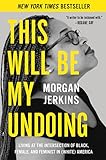 This Will Be My Undoing by Morgan Jerkins: Wünderkind Jerkins has a background in 19th-century Russian lit and postwar Japanese lit, speaks six languages, works/has worked as editor and assistant literary agent; she writes across many genres—reportage, personal essays, fiction, profiles, interviews, literary criticism, and sports and pop culture pieces; and now we’ll be seeing her first book, an essay collection. From the publisher: “This is a book about black women, but it’s necessary reading for all Americans.” The collected essays will cover topics ranging from “Rachel Dolezal; the stigma of therapy; her complex relationship with her own physical body; the pain of dating when men say they don’t ‘see color’; being a black visitor in Russia; the specter of ‘the fast-tailed girl’ and the paradox of black female sexuality; or disabled black women in the context of the ‘Black Girl Magic’ movement.” (Sonya)
This Will Be My Undoing by Morgan Jerkins: Wünderkind Jerkins has a background in 19th-century Russian lit and postwar Japanese lit, speaks six languages, works/has worked as editor and assistant literary agent; she writes across many genres—reportage, personal essays, fiction, profiles, interviews, literary criticism, and sports and pop culture pieces; and now we’ll be seeing her first book, an essay collection. From the publisher: “This is a book about black women, but it’s necessary reading for all Americans.” The collected essays will cover topics ranging from “Rachel Dolezal; the stigma of therapy; her complex relationship with her own physical body; the pain of dating when men say they don’t ‘see color’; being a black visitor in Russia; the specter of ‘the fast-tailed girl’ and the paradox of black female sexuality; or disabled black women in the context of the ‘Black Girl Magic’ movement.” (Sonya)
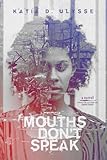 Mouths Don’t Speak by Katia D. Ulysse: In Drifting, Ulysse’s 2014 story collection, Haitian immigrants struggle through New York City after the 2010 earthquake that destroyed much of their county. In her debut novel, Ulysse revisits that disaster with a clearer and sharper focus. Jacqueline Florestant is mourning her parents, presumed dead after the earthquake, while her ex-Marine husband cares for their young daughter. But the expected losses aren’t the most serious, and a trip to freshly-wounded Haiti exposes the way tragedy follows class lines as well as family ones. (Kaulie)
Mouths Don’t Speak by Katia D. Ulysse: In Drifting, Ulysse’s 2014 story collection, Haitian immigrants struggle through New York City after the 2010 earthquake that destroyed much of their county. In her debut novel, Ulysse revisits that disaster with a clearer and sharper focus. Jacqueline Florestant is mourning her parents, presumed dead after the earthquake, while her ex-Marine husband cares for their young daughter. But the expected losses aren’t the most serious, and a trip to freshly-wounded Haiti exposes the way tragedy follows class lines as well as family ones. (Kaulie)
 The Sky Is Yours by Chandler Klang Smith: Smith’s The Sky Is Yours, is a blockbuster of major label debuts. The dystopic inventiveness of this genre hybrid sci-fi thriller/coming of age tale/adventure novel has garnered comparisons to Gary Shteyngart, David Mitchell and Ridley Scott’s Blade Runner. And did I mention? It has dragons, too, circling the crumbling Empire Island, and with them a fire problem (of course), and features a reality TV star from a show called Late Capitalism’s Royalty. Victor LaValle calls The Sky Is Yours “a raucous, inventive gem of a debut.” Don’t just take our word for it, listen to an audio excerpt. (Anne)
The Sky Is Yours by Chandler Klang Smith: Smith’s The Sky Is Yours, is a blockbuster of major label debuts. The dystopic inventiveness of this genre hybrid sci-fi thriller/coming of age tale/adventure novel has garnered comparisons to Gary Shteyngart, David Mitchell and Ridley Scott’s Blade Runner. And did I mention? It has dragons, too, circling the crumbling Empire Island, and with them a fire problem (of course), and features a reality TV star from a show called Late Capitalism’s Royalty. Victor LaValle calls The Sky Is Yours “a raucous, inventive gem of a debut.” Don’t just take our word for it, listen to an audio excerpt. (Anne)
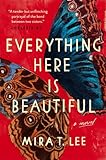 Everything Here Is Beautiful by Mira T. Lee: Spanning cultures and continents, Lee’s assured debut novel tells the story of two sisters who are bound together and driven apart by the inescapable bonds of family. Miranda is the sensible one, thrust into the role of protector of Lucia, seven years younger, head-strong, and headed for trouble. Their mother emigrated from China to the U.S. after the death of their father, and as the novel unfurls in clear, accessible prose, we follow the sisters on journeys that cover thousands of miles and take us into the deepest recesses of the human heart. Despite its sunny title, this novel never flinches from big and dark issues, including interracial love, mental illness and its treatment, and the dislocations of immigrant life. (Bill)
Everything Here Is Beautiful by Mira T. Lee: Spanning cultures and continents, Lee’s assured debut novel tells the story of two sisters who are bound together and driven apart by the inescapable bonds of family. Miranda is the sensible one, thrust into the role of protector of Lucia, seven years younger, head-strong, and headed for trouble. Their mother emigrated from China to the U.S. after the death of their father, and as the novel unfurls in clear, accessible prose, we follow the sisters on journeys that cover thousands of miles and take us into the deepest recesses of the human heart. Despite its sunny title, this novel never flinches from big and dark issues, including interracial love, mental illness and its treatment, and the dislocations of immigrant life. (Bill)
 The Infinite Future by Tim Wirkus: I read this brilliant puzzle-of-a-book last March and I still think about it regularly! The Infinite Future follows a struggling writer, a librarian, and a Mormon historian excommunicated from the church on their search for a reclusive Brazilian science fiction writer. In a starred review, Book Page compares Wirkus to Jonathan Lethem and Ron Currie Jr., and says the book “announces Wirkus as one of the most exciting novelists of his generation.” I agree. (Edan)
The Infinite Future by Tim Wirkus: I read this brilliant puzzle-of-a-book last March and I still think about it regularly! The Infinite Future follows a struggling writer, a librarian, and a Mormon historian excommunicated from the church on their search for a reclusive Brazilian science fiction writer. In a starred review, Book Page compares Wirkus to Jonathan Lethem and Ron Currie Jr., and says the book “announces Wirkus as one of the most exciting novelists of his generation.” I agree. (Edan)
 The Job of the Wasp by Colin Winnette: With Winnette’s fourth novel he proves he’s adept at re-appropriating genre conventions in intriguing ways. His previous book, Haint’s Stay, is a Western tale jimmyrigged for its own purposes and is at turns both surreal and humorous. Winnette’s latest, The Job of the Wasp, takes on the Gothic ghost novel and is set in the potentially creepiest of places—an isolated boarding school for orphaned boys, in the vein of Robert Walser’s Jakob von Gunten, Jenny Erpenbeck’s The Old Child, or even Charles Dickens’s Oliver Twist. “Witty and grisly” according to Kelly Link, strange and creepy, Job of the Wasp reveals Winnette’s “natural talent” says Patrick deWitt. (Anne)
The Job of the Wasp by Colin Winnette: With Winnette’s fourth novel he proves he’s adept at re-appropriating genre conventions in intriguing ways. His previous book, Haint’s Stay, is a Western tale jimmyrigged for its own purposes and is at turns both surreal and humorous. Winnette’s latest, The Job of the Wasp, takes on the Gothic ghost novel and is set in the potentially creepiest of places—an isolated boarding school for orphaned boys, in the vein of Robert Walser’s Jakob von Gunten, Jenny Erpenbeck’s The Old Child, or even Charles Dickens’s Oliver Twist. “Witty and grisly” according to Kelly Link, strange and creepy, Job of the Wasp reveals Winnette’s “natural talent” says Patrick deWitt. (Anne)
 Brass by Xhenet Aliu: In what Publishers Weekly calls a “striking first novel,” a daughter searches for answers about the relationship between her parents, a diner waitress from Waterbury, Conn. and a line cook who emigrated from Albania. Aliu writes a story of love, family, and the search for an origin story, set against the decaying backdrop of a post-industrial town. In a starred review, Kirkus writes “Aliu’s riveting, sensitive work shines with warmth, clarity, and a generosity of spirit.” (Lydia)
Brass by Xhenet Aliu: In what Publishers Weekly calls a “striking first novel,” a daughter searches for answers about the relationship between her parents, a diner waitress from Waterbury, Conn. and a line cook who emigrated from Albania. Aliu writes a story of love, family, and the search for an origin story, set against the decaying backdrop of a post-industrial town. In a starred review, Kirkus writes “Aliu’s riveting, sensitive work shines with warmth, clarity, and a generosity of spirit.” (Lydia)
 The Immortalists by Chloe Benjamin: Four adolescent sibling in 1960s New York City sneak out to see a psychic, who tells each of them the exact date they will die. They take this information with a grain of salt, and keep it from each other, but Benjamin’s novel follows them through the succeeding decades, as their lives alternately intertwine and drift apart, examining how the possible knowledge of their impending death affects how they live. I’m going to break my no-novels-about-New-Yorkers rule for this one. (Janet)
The Immortalists by Chloe Benjamin: Four adolescent sibling in 1960s New York City sneak out to see a psychic, who tells each of them the exact date they will die. They take this information with a grain of salt, and keep it from each other, but Benjamin’s novel follows them through the succeeding decades, as their lives alternately intertwine and drift apart, examining how the possible knowledge of their impending death affects how they live. I’m going to break my no-novels-about-New-Yorkers rule for this one. (Janet)
 King Zeno by Nathaniel Rich: This historical thriller features an ax-wielding psychopath wreaking havoc in the city of Sazeracs. It’s been eight years since Rich moved to New Orleans, and in that time, he’s been a keen observer, filing pieces on the city’s storied history and changing identity for various publications, not least of all The New York Review of Books. He’s certainly paid his dues, which is vitally important since the Big Easy is an historically difficult city for outsiders to nail without resorting to distracting tokenism (a pelican ate my beignet in the Ninth Ward). Fortunately, Rich is better than that. (Nick M.)
King Zeno by Nathaniel Rich: This historical thriller features an ax-wielding psychopath wreaking havoc in the city of Sazeracs. It’s been eight years since Rich moved to New Orleans, and in that time, he’s been a keen observer, filing pieces on the city’s storied history and changing identity for various publications, not least of all The New York Review of Books. He’s certainly paid his dues, which is vitally important since the Big Easy is an historically difficult city for outsiders to nail without resorting to distracting tokenism (a pelican ate my beignet in the Ninth Ward). Fortunately, Rich is better than that. (Nick M.)
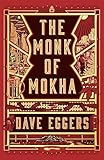 The Monk of Mokha by Dave Eggers: Eggers returns to his person-centered reportage with an account of a Yemeni-American man named Mokhtar Alkhanshali’s efforts to revive the Yemeni tradition of coffee production just when war is brewing. A starred Kirkus review calls Eggers’s latest “a most improbable and uplifting success story.” (Lydia)
The Monk of Mokha by Dave Eggers: Eggers returns to his person-centered reportage with an account of a Yemeni-American man named Mokhtar Alkhanshali’s efforts to revive the Yemeni tradition of coffee production just when war is brewing. A starred Kirkus review calls Eggers’s latest “a most improbable and uplifting success story.” (Lydia)
 In Every Moment We Are Still Alive by Tom Malmquist (translated by Henning Koch): A hit novel by a Swedish poet brought to English-reading audiences by Melville House. This autobiographical novel tells the story of a poet whose girlfriend leaves the world just as their daughter is coming into it–succumbing suddenly to undiagnosed leukemia at 33 weeks. A work of autofiction about grief and survival that Publisher’s Weekly calls a “beautiful, raw meditation on earth-shattering personal loss.” (Lydia)
In Every Moment We Are Still Alive by Tom Malmquist (translated by Henning Koch): A hit novel by a Swedish poet brought to English-reading audiences by Melville House. This autobiographical novel tells the story of a poet whose girlfriend leaves the world just as their daughter is coming into it–succumbing suddenly to undiagnosed leukemia at 33 weeks. A work of autofiction about grief and survival that Publisher’s Weekly calls a “beautiful, raw meditation on earth-shattering personal loss.” (Lydia)
 Peculiar Ground by Lucy Hughes-Hallett: The award-winning British historian (The Pike: Gabriele D’Annunzio, Poet, Seducer and Preacher of War) makes her fiction debut. Narrated by multiple characters, the historical novel spans three centuries and explores the very timely theme of immigration. Walls are erected and cause unforeseen consequences for both the present and futurey. In its starred review, Kirkus said the novel was “stunning for both its historical sweep and its elegant prose.” (Carolyn)
Peculiar Ground by Lucy Hughes-Hallett: The award-winning British historian (The Pike: Gabriele D’Annunzio, Poet, Seducer and Preacher of War) makes her fiction debut. Narrated by multiple characters, the historical novel spans three centuries and explores the very timely theme of immigration. Walls are erected and cause unforeseen consequences for both the present and futurey. In its starred review, Kirkus said the novel was “stunning for both its historical sweep and its elegant prose.” (Carolyn)
 Neon in Daylight by Hermione Hoby: A novel about art, loneliness, sex, and restless city life set against the backdrop of Hurricane Sandy-era New York, Neon in Daylight follows a young, adrift English catsitter as she explores the galleries of New York and develops an infatuation with a successful writer and his daughter, a barista and sex-worker. The great Ann Patchett called Hoby “a writer of extreme intelligence, insight, style and beauty.” (Lydia)
Neon in Daylight by Hermione Hoby: A novel about art, loneliness, sex, and restless city life set against the backdrop of Hurricane Sandy-era New York, Neon in Daylight follows a young, adrift English catsitter as she explores the galleries of New York and develops an infatuation with a successful writer and his daughter, a barista and sex-worker. The great Ann Patchett called Hoby “a writer of extreme intelligence, insight, style and beauty.” (Lydia)
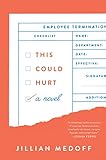 This Could Hurt by Jillian Medoff: Medoff works a double shift: when she isn’t writing novels, she’s working as a management consultant, which means, as her official bio explains, “that she uses phrases like ‘driving behavior’ and ‘increasing ROI’ without irony.” In her fourth novel, she turns her attention to a milieu she knows very well, the strange and singular world of corporate America: five colleagues in a corporate HR department struggle to find their footing amidst the upheaval and uncertainty of the 2008-2009 economic collapse. (Emily)
This Could Hurt by Jillian Medoff: Medoff works a double shift: when she isn’t writing novels, she’s working as a management consultant, which means, as her official bio explains, “that she uses phrases like ‘driving behavior’ and ‘increasing ROI’ without irony.” In her fourth novel, she turns her attention to a milieu she knows very well, the strange and singular world of corporate America: five colleagues in a corporate HR department struggle to find their footing amidst the upheaval and uncertainty of the 2008-2009 economic collapse. (Emily)
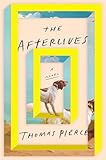 The Afterlives by Thomas Pierce: Pierce’s first novel is a fascinating and beautifully rendered meditation on ghosts, technology, marriage, and the afterlife. In a near-future world where holograms are beginning to proliferate in every aspect of daily life, a man dies—for a few minutes, from a heart attack, before he’s revived—returns with no memory of his time away, and becomes obsessed with mortality and the afterlife. In a world increasingly populated by holograms, what does it mean to “see a ghost?” What if there’s no afterlife? On the other hand, what if there is an afterlife, and what if the afterlife has an afterlife? (Emily)
The Afterlives by Thomas Pierce: Pierce’s first novel is a fascinating and beautifully rendered meditation on ghosts, technology, marriage, and the afterlife. In a near-future world where holograms are beginning to proliferate in every aspect of daily life, a man dies—for a few minutes, from a heart attack, before he’s revived—returns with no memory of his time away, and becomes obsessed with mortality and the afterlife. In a world increasingly populated by holograms, what does it mean to “see a ghost?” What if there’s no afterlife? On the other hand, what if there is an afterlife, and what if the afterlife has an afterlife? (Emily)
 Grist Mill Road by Christopher J. Yates: The follow-up novel by the author of Black Chalk, an NPR Best of the Year selection. Yates’s latest “Rashomon-style” literary thriller follows a group of friends up the Hudson, where they are involved in a terrible crime. “I Know What You Did Last Summer”-style, they reconvene years later, with dire consequences. The novel receives the coveted Tana French endorsement: she calls it “darkly, intricately layered, full of pitfalls and switchbacks, smart and funny and moving and merciless.” (Lydia)
Grist Mill Road by Christopher J. Yates: The follow-up novel by the author of Black Chalk, an NPR Best of the Year selection. Yates’s latest “Rashomon-style” literary thriller follows a group of friends up the Hudson, where they are involved in a terrible crime. “I Know What You Did Last Summer”-style, they reconvene years later, with dire consequences. The novel receives the coveted Tana French endorsement: she calls it “darkly, intricately layered, full of pitfalls and switchbacks, smart and funny and moving and merciless.” (Lydia)
FEBRUARY
 The Friend by Sigrid Nunez: In her latest novel, Nunez (a Year in Reading alum) ruminates on loss, art, and the unlikely—but necessary—bonds between man and dog. After the suicide of her best friend and mentor, an unnamed, middle-aged writing professor is left Apollo, his beloved, aging Great Dane. Publishers Weekly says the “elegant novel” reflects “the way that, especially in grief, the past is often more vibrant than the present.” (Carolyn)
The Friend by Sigrid Nunez: In her latest novel, Nunez (a Year in Reading alum) ruminates on loss, art, and the unlikely—but necessary—bonds between man and dog. After the suicide of her best friend and mentor, an unnamed, middle-aged writing professor is left Apollo, his beloved, aging Great Dane. Publishers Weekly says the “elegant novel” reflects “the way that, especially in grief, the past is often more vibrant than the present.” (Carolyn)
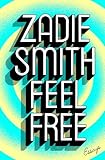 Feel Free by Zadie Smith: In her forthcoming essay collection, Smith provides a critical look at contemporary topics, including art, film, politics, and pop-culture. Feel Free includes many essays previously published in The New Yorker and The New York Review of Books and it is divided into five sections: In the World, In the Audience, In the Gallery, On the Bookshelf, and Feel Free. Andrew Solomon described the collection as “a tonic that will help the reader reengage with life.” (Zoë)
Feel Free by Zadie Smith: In her forthcoming essay collection, Smith provides a critical look at contemporary topics, including art, film, politics, and pop-culture. Feel Free includes many essays previously published in The New Yorker and The New York Review of Books and it is divided into five sections: In the World, In the Audience, In the Gallery, On the Bookshelf, and Feel Free. Andrew Solomon described the collection as “a tonic that will help the reader reengage with life.” (Zoë)
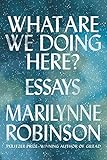 What Are We Doing Here? by Marilynne Robinson: One of my favorite literary discoveries of 2017 was that there are two camps of Robinson fans. Are you more Housekeeping or Gilead? To be clear, all of us Housekeeping people claim to have loved her work before the Pulitzer committee agreed. But this new book is a collection of essays where Robinson explores the modern political climate and the mysteries of faith, including, “theological, political, and contemporary themes.” Given that the essays come from Robinson’s incisive mind, I think there will be more than enough to keep both camps happy. (Claire)
What Are We Doing Here? by Marilynne Robinson: One of my favorite literary discoveries of 2017 was that there are two camps of Robinson fans. Are you more Housekeeping or Gilead? To be clear, all of us Housekeeping people claim to have loved her work before the Pulitzer committee agreed. But this new book is a collection of essays where Robinson explores the modern political climate and the mysteries of faith, including, “theological, political, and contemporary themes.” Given that the essays come from Robinson’s incisive mind, I think there will be more than enough to keep both camps happy. (Claire)
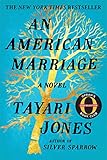 An American Marriage by Tayari Jones: In our greatest tragedies, there is the feeling of no escape—and when the storytelling is just right, we feel consumed by the heartbreak. In Jones’s powerful new novel, Celestial and Roy are a married couple with optimism for their future. Early in the book, Jones offers a revelation about Roy’s family, but that secret is nothing compared to what happens next: Roy is arrested for a crime he didn’t commit, and sentenced to over a decade in prison. An American Marriage arrives in the pained, authentic voices of Celestial, Roy, and Andre—Celestial’s longtime friend who moves into the space left by Roy’s absence. Life, and love, must go on. When the couple writes “I am innocent” to each other in consecutive letters, we weep for their world—but Jones makes sure that we can’t look away. (Nick R.)
An American Marriage by Tayari Jones: In our greatest tragedies, there is the feeling of no escape—and when the storytelling is just right, we feel consumed by the heartbreak. In Jones’s powerful new novel, Celestial and Roy are a married couple with optimism for their future. Early in the book, Jones offers a revelation about Roy’s family, but that secret is nothing compared to what happens next: Roy is arrested for a crime he didn’t commit, and sentenced to over a decade in prison. An American Marriage arrives in the pained, authentic voices of Celestial, Roy, and Andre—Celestial’s longtime friend who moves into the space left by Roy’s absence. Life, and love, must go on. When the couple writes “I am innocent” to each other in consecutive letters, we weep for their world—but Jones makes sure that we can’t look away. (Nick R.)
 The Strange Bird by Jeff VanderMeer: Nothing is what it seems in VanderMeer’s fiction: bears fly, lab-generated protoplasm shapeshifts, and magic undoes science. In this expansion of his acclaimed novel Borne, which largely focused on terrestrial creatures scavenging a post-collapse wasteland, VanderMeer turns his attention upward. Up in the sky, things look a bit different. (Check out his prodigious Year in Reading here.) (Nick M.)
The Strange Bird by Jeff VanderMeer: Nothing is what it seems in VanderMeer’s fiction: bears fly, lab-generated protoplasm shapeshifts, and magic undoes science. In this expansion of his acclaimed novel Borne, which largely focused on terrestrial creatures scavenging a post-collapse wasteland, VanderMeer turns his attention upward. Up in the sky, things look a bit different. (Check out his prodigious Year in Reading here.) (Nick M.)
 House of Impossible Beauties by Joseph Cassara: First made famous in the documentary Paris Is Burning, New York City’s House of Xtravaganza is now getting a literary treatment in Cassara’s debut novel—one that’s already drawing comparisons to Hanya Yanagihara’s A Little Life. The story follows teenage Angel, a young drag queen just coming into her own, as she falls in love, founds her own house and becomes the center of a vibrant—and troubled—community. Critics call it “fierce, tender, and heartbreaking.” (Kaulie)
House of Impossible Beauties by Joseph Cassara: First made famous in the documentary Paris Is Burning, New York City’s House of Xtravaganza is now getting a literary treatment in Cassara’s debut novel—one that’s already drawing comparisons to Hanya Yanagihara’s A Little Life. The story follows teenage Angel, a young drag queen just coming into her own, as she falls in love, founds her own house and becomes the center of a vibrant—and troubled—community. Critics call it “fierce, tender, and heartbreaking.” (Kaulie)
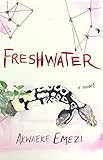 Freshwater by Akwaeke Emezi: A surreal, metaphysical debut novel dealing with myth, mental health, and fractured selves centering around Ada, a woman from southern Nigeria “born with one foot on the other side.” She attends college in the U.S., where several internal voices emerge to pull her this way and that. Library Journal calls this “a gorgeous, unsettling look into the human psyche.” (Lydia)
Freshwater by Akwaeke Emezi: A surreal, metaphysical debut novel dealing with myth, mental health, and fractured selves centering around Ada, a woman from southern Nigeria “born with one foot on the other side.” She attends college in the U.S., where several internal voices emerge to pull her this way and that. Library Journal calls this “a gorgeous, unsettling look into the human psyche.” (Lydia)
 Red Clocks by Leni Zumas: The latest novel from the author of The Listeners follows five women of different station in a small town in Oregon in a U.S. where abortion and IVF have been banned and embryos have been endowed with all the rights of people. A glimpse at the world some of our current lawmakers would like to usher in, one that Maggie Nelson calls “mordant, political, poetic, alarming, and inspiring–not to mention a way forward for fiction now.” (Lydia)
Red Clocks by Leni Zumas: The latest novel from the author of The Listeners follows five women of different station in a small town in Oregon in a U.S. where abortion and IVF have been banned and embryos have been endowed with all the rights of people. A glimpse at the world some of our current lawmakers would like to usher in, one that Maggie Nelson calls “mordant, political, poetic, alarming, and inspiring–not to mention a way forward for fiction now.” (Lydia)
 Heart Berries by Terese Mailhot: In her debut memoir, Mailhot—raised on the Seabird Island Indian Reservation in southwestern Canada, presently a postdoctoral fellow at Purdue—grapples with a dual diagnosis of PTSD and Bipolar II disorder, and with the complicated legacy of a dysfunctional family. Sherman Alexie has hailed this book as “an epic take—an Iliad for the indigenous.” (Emily)
Heart Berries by Terese Mailhot: In her debut memoir, Mailhot—raised on the Seabird Island Indian Reservation in southwestern Canada, presently a postdoctoral fellow at Purdue—grapples with a dual diagnosis of PTSD and Bipolar II disorder, and with the complicated legacy of a dysfunctional family. Sherman Alexie has hailed this book as “an epic take—an Iliad for the indigenous.” (Emily)
 Asymmetry by Lisa Halliday: 2017 Whiting Award winner Halliday has written a novel interweaving the lives of a young American editor and a Kurdistan-bound Iraqi-American man stuck in an immigration holding room in Heathrow airport. Louise Erdrich calls this “a novel of deceptive lightness and a sort of melancholy joy.” (Lydia)
Asymmetry by Lisa Halliday: 2017 Whiting Award winner Halliday has written a novel interweaving the lives of a young American editor and a Kurdistan-bound Iraqi-American man stuck in an immigration holding room in Heathrow airport. Louise Erdrich calls this “a novel of deceptive lightness and a sort of melancholy joy.” (Lydia)
 Back Talk by Danielle Lazarin: long live the short story, as long as writers like Lazarin are here to keep the form fresh. The collection begins with “Appetite,” narrated by nearly 16-year-old Claudia, whose mother died of lung cancer. She might seem all grown up, but “I am still afraid of pain—for myself, for all of us.” Lazarin brings us back to a time when story collections were adventures in radical empathy: discrete panels of pained lives, of which we are offered chiseled glimpses. Even in swift tales like “Window Guards,” Lazarin has a finely-tuned sense of pacing and presence: “The first time Owen shows me the photograph of the ghost dog, I don’t believe it.” Short stories are like sideways glances or overheard whispers that become more, and Lazarin makes us believe there’s worth in stories that we can steal moments to experience. (Nick R.)
Back Talk by Danielle Lazarin: long live the short story, as long as writers like Lazarin are here to keep the form fresh. The collection begins with “Appetite,” narrated by nearly 16-year-old Claudia, whose mother died of lung cancer. She might seem all grown up, but “I am still afraid of pain—for myself, for all of us.” Lazarin brings us back to a time when story collections were adventures in radical empathy: discrete panels of pained lives, of which we are offered chiseled glimpses. Even in swift tales like “Window Guards,” Lazarin has a finely-tuned sense of pacing and presence: “The first time Owen shows me the photograph of the ghost dog, I don’t believe it.” Short stories are like sideways glances or overheard whispers that become more, and Lazarin makes us believe there’s worth in stories that we can steal moments to experience. (Nick R.)
 The Château by Paul Goldberg: In Goldberg’s debut novel, The Yid, the irrepressible members of a Yiddish acting troupe stage manages a plot to assassinate Joseph Stalin in hopes of averting a deadly Jewish pogrom. In his second novel, the stakes are somewhat lower: a heated election for control of a Florida condo board. Kirkus writes that Goldberg’s latest “confirms his status as one of Jewish fiction’s liveliest new voices, walking in the shoes of such deadpan provocateurs as Mordecai Richler and Stanley Elkin.” (Matt)
The Château by Paul Goldberg: In Goldberg’s debut novel, The Yid, the irrepressible members of a Yiddish acting troupe stage manages a plot to assassinate Joseph Stalin in hopes of averting a deadly Jewish pogrom. In his second novel, the stakes are somewhat lower: a heated election for control of a Florida condo board. Kirkus writes that Goldberg’s latest “confirms his status as one of Jewish fiction’s liveliest new voices, walking in the shoes of such deadpan provocateurs as Mordecai Richler and Stanley Elkin.” (Matt)
 The Line Becomes a River by Francisco Cantú: A memoir by a Whiting Award-winner who served as a U.S. border patrol agent. Descended from Mexican immigrants, Cantú spends four years in the border patrol before leaving for civilian life. His book documents his work at the border, and his subsequent quest to discover what happened to a vanished immigrant friend. (Lydia)
The Line Becomes a River by Francisco Cantú: A memoir by a Whiting Award-winner who served as a U.S. border patrol agent. Descended from Mexican immigrants, Cantú spends four years in the border patrol before leaving for civilian life. His book documents his work at the border, and his subsequent quest to discover what happened to a vanished immigrant friend. (Lydia)
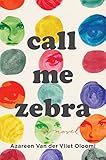 Call Me Zebra by Azareen Van der Vliet Oloomi: If the driving force of Van der Vliet Oloomi’s first novel, Fra Keeler, was “pushing narrative to its limits” through unbuilding and decomposition, her second novel, Call Me Zebra, promises to do the same through a madcap and darkly humorous journey of retracing the past to build anew. Bibi Abbas Abbas Hossein is last in a line of autodidacts, anarchists, and atheists, whose family left Iran by way of Spain when she was a child. The book follows Bibi in present day as she returns to Barcelona from the U.S., renames herself Zebra and falls in love. Van der Vliet Oloomi pays homage to a quixotic mix of influences—including Miguel de Cervantes, Jorge Luis Borges, and Kathy Acker—in Call Me Zebra, which Kirkus calls “a brilliant, demented, and bizarro book that demands and rewards all the attention a reader might dare to give it.” (Anne)
Call Me Zebra by Azareen Van der Vliet Oloomi: If the driving force of Van der Vliet Oloomi’s first novel, Fra Keeler, was “pushing narrative to its limits” through unbuilding and decomposition, her second novel, Call Me Zebra, promises to do the same through a madcap and darkly humorous journey of retracing the past to build anew. Bibi Abbas Abbas Hossein is last in a line of autodidacts, anarchists, and atheists, whose family left Iran by way of Spain when she was a child. The book follows Bibi in present day as she returns to Barcelona from the U.S., renames herself Zebra and falls in love. Van der Vliet Oloomi pays homage to a quixotic mix of influences—including Miguel de Cervantes, Jorge Luis Borges, and Kathy Acker—in Call Me Zebra, which Kirkus calls “a brilliant, demented, and bizarro book that demands and rewards all the attention a reader might dare to give it.” (Anne)
 Some Hell by Patrick Nathan: A man commits suicide, leaving his wife, daughter, and two sons reckoning with their loss. Focused on the twinned narratives of Colin, a middle schooler coming to terms with his sexuality, as well as Diane, his mother who’s trying to mend her fractured family, Nathan’s debut novel explores the various ways we cope with maturity, parenting, and heartbreak. (Read Nathan’s Year in Reading here.) (Nick M.)
Some Hell by Patrick Nathan: A man commits suicide, leaving his wife, daughter, and two sons reckoning with their loss. Focused on the twinned narratives of Colin, a middle schooler coming to terms with his sexuality, as well as Diane, his mother who’s trying to mend her fractured family, Nathan’s debut novel explores the various ways we cope with maturity, parenting, and heartbreak. (Read Nathan’s Year in Reading here.) (Nick M.)
 The Wedding Date by Jasmine Guillory: If 2017 was any indication, events in 2018 will try the soul. Some readers like to find escape from uncertain times with dour dystopian prognostications or strained family stories (and there are plenty). But what about something fun? Something with sex (and maybe, eventually, love). Something Roxane Gay called a “charming, warm, sexy gem of a novel….One of the best books I’ve read in a while.” Something so fun and sexy it earned its author a two-book deal (look out for the next book, The Proposal, this fall). Wouldn’t it feel good to feel good again? (Lydia)
The Wedding Date by Jasmine Guillory: If 2017 was any indication, events in 2018 will try the soul. Some readers like to find escape from uncertain times with dour dystopian prognostications or strained family stories (and there are plenty). But what about something fun? Something with sex (and maybe, eventually, love). Something Roxane Gay called a “charming, warm, sexy gem of a novel….One of the best books I’ve read in a while.” Something so fun and sexy it earned its author a two-book deal (look out for the next book, The Proposal, this fall). Wouldn’t it feel good to feel good again? (Lydia)
MARCH
 The Census by Jesse Ball: Novelist Ball’s nimble writing embodies the lightness and quickness that Calvino prized (quite literally, too: he pens his novels in a mad dash of days to weeks). And he is prolific, too. Since his previous novel, How to Start a Fire and Why, he has has written about the practice of lucid dreaming and his unique form of pedagogy, as well as a delightfully morbid compendium of Henry King’s deaths, with Brian Evenson. Ball’s seventh novel, The Census, tells the story of a dying doctor and his concern regarding who will care for his son with Down Syndrome, as they set off together on a cross-country journey. (Anne)
The Census by Jesse Ball: Novelist Ball’s nimble writing embodies the lightness and quickness that Calvino prized (quite literally, too: he pens his novels in a mad dash of days to weeks). And he is prolific, too. Since his previous novel, How to Start a Fire and Why, he has has written about the practice of lucid dreaming and his unique form of pedagogy, as well as a delightfully morbid compendium of Henry King’s deaths, with Brian Evenson. Ball’s seventh novel, The Census, tells the story of a dying doctor and his concern regarding who will care for his son with Down Syndrome, as they set off together on a cross-country journey. (Anne)
 Men and Apparitions by Lynne Tillman: News of a new Tillman novel is worthy of raising a glass. Men and Apparitions is the follow-up novel to Tillman’s brilliant, ambitious American Genius: A Comedy. Men and Apparitions looks closely at our obsession with the image through the perspective of cultural anthropologist Ezekiel “Zeke” Hooper Stark. Norman Rush says, “this book is compelling and bracing and you read many sentences twice to get all the juice there is in them.” Sarah Manguso has said she is “grateful” for Tillman’s “authentically weird and often indescribable books.” I second that. (Anne)
Men and Apparitions by Lynne Tillman: News of a new Tillman novel is worthy of raising a glass. Men and Apparitions is the follow-up novel to Tillman’s brilliant, ambitious American Genius: A Comedy. Men and Apparitions looks closely at our obsession with the image through the perspective of cultural anthropologist Ezekiel “Zeke” Hooper Stark. Norman Rush says, “this book is compelling and bracing and you read many sentences twice to get all the juice there is in them.” Sarah Manguso has said she is “grateful” for Tillman’s “authentically weird and often indescribable books.” I second that. (Anne)
 Whiskey & Ribbons by Leesa Cross-Smith: Police officer Eamon Michael Royce is killed in the line of duty. His pregnant wife, Evi, narrates Eamon’s passing with elegiac words: “I think of him making the drive, the gentle peachy July morning light illuminating his last moments, his last heartbeat, his last breath.” Months later and wracked with grief, Evi falls for her brother-in-law Dalton: “Backyard-wandering, full-moon pregnant in my turquoise maternity dress and tobacco-colored cowboy boots. I’d lose my way. Dalton would find me. He was always finding me.” The sentences in Cross-Smith’s moving debut are lifted by a sense of awe and mystery—a style attuned to the graces of this world. Whiskey & Ribbons turns backward and forward in time: we hear Eamon’s anxieties about fatherhood, and Dalton’s continuous search for meaning in his life. “I am always hot, like I’m on fire,” Evi dreams later in the novel, still reliving her husband’s death, “burning and gasping for air.” In Cross-Smith’s novel, the past is never forgotten. (Nick R.)
Whiskey & Ribbons by Leesa Cross-Smith: Police officer Eamon Michael Royce is killed in the line of duty. His pregnant wife, Evi, narrates Eamon’s passing with elegiac words: “I think of him making the drive, the gentle peachy July morning light illuminating his last moments, his last heartbeat, his last breath.” Months later and wracked with grief, Evi falls for her brother-in-law Dalton: “Backyard-wandering, full-moon pregnant in my turquoise maternity dress and tobacco-colored cowboy boots. I’d lose my way. Dalton would find me. He was always finding me.” The sentences in Cross-Smith’s moving debut are lifted by a sense of awe and mystery—a style attuned to the graces of this world. Whiskey & Ribbons turns backward and forward in time: we hear Eamon’s anxieties about fatherhood, and Dalton’s continuous search for meaning in his life. “I am always hot, like I’m on fire,” Evi dreams later in the novel, still reliving her husband’s death, “burning and gasping for air.” In Cross-Smith’s novel, the past is never forgotten. (Nick R.)
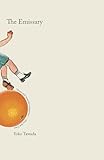 The Emissary by Yoko Tawada (translated by Margaret Mitsutani): In a New Yorker essay on Tawada, author of Memoirs of a Polar Bear, Riva Galchen wrote that “often in [her] work, one has the feeling of having wandered into a mythology that is not one’s own.” Tawada’s latest disorienting mythology is set in a Japan ravaged by a catastrophe. If children are the future, what does it presage that, post-disaster, they are emerging from the womb as frail, aged creatures blessed with an uncanny wisdom? (Read her Year in Reading here.) (Matt)
The Emissary by Yoko Tawada (translated by Margaret Mitsutani): In a New Yorker essay on Tawada, author of Memoirs of a Polar Bear, Riva Galchen wrote that “often in [her] work, one has the feeling of having wandered into a mythology that is not one’s own.” Tawada’s latest disorienting mythology is set in a Japan ravaged by a catastrophe. If children are the future, what does it presage that, post-disaster, they are emerging from the womb as frail, aged creatures blessed with an uncanny wisdom? (Read her Year in Reading here.) (Matt)
 The Sparsholt Affair by Alan Hollinghurst: Hollinghurst’s sixth novel has already received glowing reviews in the U.K. As the title suggests, the plot hinges on a love affair, and follows two generations of the Sparsholt family, opening in 1940 at Oxford, just before WWII. The Guardian called it “an unashamedly readable novel…indeed it feels occasionally like Hollinghurst is trying to house all the successful elements of his previous books under the roof of one novel.” To those of us who adore his books, this sounds heavenly. (Hannah)
The Sparsholt Affair by Alan Hollinghurst: Hollinghurst’s sixth novel has already received glowing reviews in the U.K. As the title suggests, the plot hinges on a love affair, and follows two generations of the Sparsholt family, opening in 1940 at Oxford, just before WWII. The Guardian called it “an unashamedly readable novel…indeed it feels occasionally like Hollinghurst is trying to house all the successful elements of his previous books under the roof of one novel.” To those of us who adore his books, this sounds heavenly. (Hannah)
 The Chandelier by Clarice Lispector (translated by Magdalena Edwards and Benjamin Moser): Since Katrina Dodson published a translation of Lispector’s complete stories in 2015, the Brazilian master’s popularity has enjoyed a resurgence. Magdalena Edwards and Benjamin Moser’s new translation of Lispector’s second novel promises to extend interest in the deceased writer’s work. It tells the story of Virginia, a sculptor who crafts intricate pieces in marked isolation. This translation marks the first time The Chandelier has ever appeared in English (Ismail).
The Chandelier by Clarice Lispector (translated by Magdalena Edwards and Benjamin Moser): Since Katrina Dodson published a translation of Lispector’s complete stories in 2015, the Brazilian master’s popularity has enjoyed a resurgence. Magdalena Edwards and Benjamin Moser’s new translation of Lispector’s second novel promises to extend interest in the deceased writer’s work. It tells the story of Virginia, a sculptor who crafts intricate pieces in marked isolation. This translation marks the first time The Chandelier has ever appeared in English (Ismail).
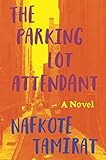 The Parking Lot Attendant by Nafkote Tamirat: It’s very easy to love this novel but difficult to describe it. A disarming narrator begins her account from a community with strange rules and obscure ideology located on an unnamed island. While she and her father uneasily bide their time in this not-quite-utopia, she reflects on her upbringing in Boston, and a friendship–with the self-styled leader of the city’s community of Ethiopian immigrants–that begins to feel sinister. As the story unfolds, what initially looked like a growing-up story in a semi-comic key becomes a troubling allegory of self-determination and sacrifice. (Lydia)
The Parking Lot Attendant by Nafkote Tamirat: It’s very easy to love this novel but difficult to describe it. A disarming narrator begins her account from a community with strange rules and obscure ideology located on an unnamed island. While she and her father uneasily bide their time in this not-quite-utopia, she reflects on her upbringing in Boston, and a friendship–with the self-styled leader of the city’s community of Ethiopian immigrants–that begins to feel sinister. As the story unfolds, what initially looked like a growing-up story in a semi-comic key becomes a troubling allegory of self-determination and sacrifice. (Lydia)
 Let’s No One Get Hurt by Jon Pineda: A fifteen-year-old girl named Pearl lives in squalor in a southern swamp with her father and two other men, scavenging for food and getting by any way they can. She meets a rich neighbor boy and starts a relationship, eventually learning that his family holds Pearl’s fate in their hands. Publisher’s Weekly called it “an evocative novel about the cruelty of children and the costs of poverty in the contemporary South.” (Lydia)
Let’s No One Get Hurt by Jon Pineda: A fifteen-year-old girl named Pearl lives in squalor in a southern swamp with her father and two other men, scavenging for food and getting by any way they can. She meets a rich neighbor boy and starts a relationship, eventually learning that his family holds Pearl’s fate in their hands. Publisher’s Weekly called it “an evocative novel about the cruelty of children and the costs of poverty in the contemporary South.” (Lydia)
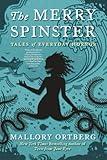 The Merry Spinster by Mallory Ortberg: Fairy tales get a feminist spin in this short story collection inspired by Ortberg’s most popular Toast column, “Children’s Stories Made Horrific.” This is not your childhood Cinderella, but one with psychological horror and Ortberg’s signature snark. Carmen Maria Machado calls it a cross between, “Terry Pratchett’s satirical jocularity and Angela Carter’s sinister, shrewd storytelling, and the result is gorgeous, unsettling, splenic, cruel, and wickedly smart.” Can’t wait to ruin our favorite fables! (Tess)
The Merry Spinster by Mallory Ortberg: Fairy tales get a feminist spin in this short story collection inspired by Ortberg’s most popular Toast column, “Children’s Stories Made Horrific.” This is not your childhood Cinderella, but one with psychological horror and Ortberg’s signature snark. Carmen Maria Machado calls it a cross between, “Terry Pratchett’s satirical jocularity and Angela Carter’s sinister, shrewd storytelling, and the result is gorgeous, unsettling, splenic, cruel, and wickedly smart.” Can’t wait to ruin our favorite fables! (Tess)
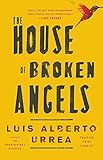 The House of Broken Angels by Luis Alberto Urrea: Urrea is one of the best public speakers I’ve ever seen with my 35-year-old eyes, so it’s incredible that it’s not even the thing he’s best at. He’s the recipient of an American Book Award and a Pulitzer nominee for The Devil’s Highway. His new novel is about the daily life of a multi-generational Mexican-American family in California. Or as he puts it, “an American family—one that happens to speak Spanish and admire the Virgin of Guadalupe.” (Janet)
The House of Broken Angels by Luis Alberto Urrea: Urrea is one of the best public speakers I’ve ever seen with my 35-year-old eyes, so it’s incredible that it’s not even the thing he’s best at. He’s the recipient of an American Book Award and a Pulitzer nominee for The Devil’s Highway. His new novel is about the daily life of a multi-generational Mexican-American family in California. Or as he puts it, “an American family—one that happens to speak Spanish and admire the Virgin of Guadalupe.” (Janet)
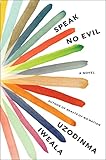 Speak No Evil by Uzodinma Iweala: Nearly 15 years after his critically-acclaimed debut novel, Beasts of No Nation, was published, Iweala is back with a story as deeply troubling. Teenagers Niru and Meredith are best friends who come from very different backgrounds. When Niru’s secret is accidentally revealed (he’s queer), there is unimaginable and unspeakable consequences for both teens. Publishers Weekly’s starred review says the “staggering sophomore novel” is “notable both for the raw force of Iweala’s prose and the moving, powerful story.” (Carolyn)
Speak No Evil by Uzodinma Iweala: Nearly 15 years after his critically-acclaimed debut novel, Beasts of No Nation, was published, Iweala is back with a story as deeply troubling. Teenagers Niru and Meredith are best friends who come from very different backgrounds. When Niru’s secret is accidentally revealed (he’s queer), there is unimaginable and unspeakable consequences for both teens. Publishers Weekly’s starred review says the “staggering sophomore novel” is “notable both for the raw force of Iweala’s prose and the moving, powerful story.” (Carolyn)
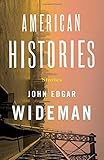 American Histories: Stories by John Edgar Wideman: Wideman’s new book is a nearly fantastical stretching and blurring of conventional literary forms—including history, fiction, philosophy, biography, and deeply felt personal vignettes. We get reimagined conversations between the abolitionist Frederick Douglass and the doomed white crusader for racial equality John Brown. We get to crawl inside the mind of a man sitting on the Williamsburg Bridge, ready to jump. We get Wideman pondering deaths in his own family. We meet Jean Michel Basquiat and Nat Turner. What we get, in the end, is a book unlike any other, the work of an American master working at peak form late in a long and magnificent career. (Bill)
American Histories: Stories by John Edgar Wideman: Wideman’s new book is a nearly fantastical stretching and blurring of conventional literary forms—including history, fiction, philosophy, biography, and deeply felt personal vignettes. We get reimagined conversations between the abolitionist Frederick Douglass and the doomed white crusader for racial equality John Brown. We get to crawl inside the mind of a man sitting on the Williamsburg Bridge, ready to jump. We get Wideman pondering deaths in his own family. We meet Jean Michel Basquiat and Nat Turner. What we get, in the end, is a book unlike any other, the work of an American master working at peak form late in a long and magnificent career. (Bill)
 Happiness by Aminatta Forna: A novel about what happens when an expert on the habits of foxes and an expert on the trauma of refugees meet in London, one that Paul Yoon raved about it in his Year in Reading: “It is a novel that carries a tremendous sense of the world, where I looked up upon finishing and sensed a shift in what I thought I knew, what I wanted to know. What a gift.” In a starred review, Publisher’s Weekly says “Forna’s latest explores instinct, resilience, and the complexity of human coexistence, reaffirming her reputation for exceptional ability and perspective.” (Lydia)
Happiness by Aminatta Forna: A novel about what happens when an expert on the habits of foxes and an expert on the trauma of refugees meet in London, one that Paul Yoon raved about it in his Year in Reading: “It is a novel that carries a tremendous sense of the world, where I looked up upon finishing and sensed a shift in what I thought I knew, what I wanted to know. What a gift.” In a starred review, Publisher’s Weekly says “Forna’s latest explores instinct, resilience, and the complexity of human coexistence, reaffirming her reputation for exceptional ability and perspective.” (Lydia)
 The Neighborhood by Mario Vargas Llosa (translated by Edith Grossman): The Nobel Prize winner’s latest arrives in translation from the extraordinary Edith Grossman. The Neighborhood is symphonic, a “thriller,” if you can call it that, about a detective whose wife gets roped into a debilitating situation. It is set in Llosa’s 1990s Peru, and you see this place with its paradox of grayness and color, juxtaposed with spots of blood. Two women married to very affluent men are having a lesbian affair, and one of their husbands, Enrique, is being blackmailed. When he fails to meet a photo magazine editor’s demands, he is slandered with photos of an erotic encounter on the front pages of the magazine. These two threads will converge at a point of explosion as is wont with Llosa’s novels. While this may not be his best work, it will keep readers reading all the way. (Chigozie)
The Neighborhood by Mario Vargas Llosa (translated by Edith Grossman): The Nobel Prize winner’s latest arrives in translation from the extraordinary Edith Grossman. The Neighborhood is symphonic, a “thriller,” if you can call it that, about a detective whose wife gets roped into a debilitating situation. It is set in Llosa’s 1990s Peru, and you see this place with its paradox of grayness and color, juxtaposed with spots of blood. Two women married to very affluent men are having a lesbian affair, and one of their husbands, Enrique, is being blackmailed. When he fails to meet a photo magazine editor’s demands, he is slandered with photos of an erotic encounter on the front pages of the magazine. These two threads will converge at a point of explosion as is wont with Llosa’s novels. While this may not be his best work, it will keep readers reading all the way. (Chigozie)
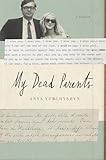 My Dead Parents by Anya Yurchyshyn: Sometimes truth is more fascinating than fiction. Such is the case with Yurchyshyn’s My Dead Parents, which started as an anonymous Tumblr blog where the author posted photos and slivers of her parents’ correspondences in an attempt to piece together the mystery of their lives. Yurchyshyn’s father was a banker who died in Ukraine in a car “accident” that was possibly a hit when she was 16, and years later, though not many, her mother succumbed to alcoholism. Her parents made an enviously handsome couple, but they lived out Leo Tolstoy’s adage of each family being unhappy in its own way. Yurchyshyn’s tale is one of curiosity and discovery; it’s also an inquiry into grief and numbness. Her Buzzfeed essay, “How I Met My Dead Parents,” provides an apt introduction. (Anne)
My Dead Parents by Anya Yurchyshyn: Sometimes truth is more fascinating than fiction. Such is the case with Yurchyshyn’s My Dead Parents, which started as an anonymous Tumblr blog where the author posted photos and slivers of her parents’ correspondences in an attempt to piece together the mystery of their lives. Yurchyshyn’s father was a banker who died in Ukraine in a car “accident” that was possibly a hit when she was 16, and years later, though not many, her mother succumbed to alcoholism. Her parents made an enviously handsome couple, but they lived out Leo Tolstoy’s adage of each family being unhappy in its own way. Yurchyshyn’s tale is one of curiosity and discovery; it’s also an inquiry into grief and numbness. Her Buzzfeed essay, “How I Met My Dead Parents,” provides an apt introduction. (Anne)
 The Last Watchman of Old Cairo by Michael David Lukas: Year in Reading alum and author of The Oracle of Stamboul explores the history of Cairo’s Ben Ezra Synagogue (site of the famous Cairo Geniza document trove discovered in the nineteenth century) through the story of its generations of Muslim watchmen as gleaned by their modern-day, Berkeley-dwelling scion. Rabih Alameddine calls it “a beautiful, richly textured novel, ambitious and delicately crafted…a joy.” (Lydia)
The Last Watchman of Old Cairo by Michael David Lukas: Year in Reading alum and author of The Oracle of Stamboul explores the history of Cairo’s Ben Ezra Synagogue (site of the famous Cairo Geniza document trove discovered in the nineteenth century) through the story of its generations of Muslim watchmen as gleaned by their modern-day, Berkeley-dwelling scion. Rabih Alameddine calls it “a beautiful, richly textured novel, ambitious and delicately crafted…a joy.” (Lydia)
 Bury What We Cannot Take by Kirstin Chen: This is an atmospheric novel of betrayal and ardent allegiance to ideology and political choices. When young Ah Liam decides it’s virtuous to report the resistance of his grandmother to Maoist rule to the authorities, he unravels his family with his own hands. His decision leads to the family having to flee the country and for them to have to make a decision: leave a fraction of the family behind or face greater harm. With its striking title about the sacrifice (the “burying”) of those who are left behind, the novel succeeds in drawing a very striking portrait of this turbulent period of Chinese history. (Chigozie)
Bury What We Cannot Take by Kirstin Chen: This is an atmospheric novel of betrayal and ardent allegiance to ideology and political choices. When young Ah Liam decides it’s virtuous to report the resistance of his grandmother to Maoist rule to the authorities, he unravels his family with his own hands. His decision leads to the family having to flee the country and for them to have to make a decision: leave a fraction of the family behind or face greater harm. With its striking title about the sacrifice (the “burying”) of those who are left behind, the novel succeeds in drawing a very striking portrait of this turbulent period of Chinese history. (Chigozie)
 Memento Park by Mark Sarvas: Many of us who have been with The Millions for some years surely remember Sarvas’s pioneer lit blog, The Elegant Variation—and look forward to his second novel, Memento Park, 10 years after his critically acclaimed Harry, Revised. Memento Park is about art, history, Jewishness, fathers and sons: Joseph O’Neill writes pithily, “A thrilling, ceaselessly intelligent investigation into the crime known as history.” So far, Kirkus praises Sarvas for “skillful prose and well-drawn characters.” (Sonya)
Memento Park by Mark Sarvas: Many of us who have been with The Millions for some years surely remember Sarvas’s pioneer lit blog, The Elegant Variation—and look forward to his second novel, Memento Park, 10 years after his critically acclaimed Harry, Revised. Memento Park is about art, history, Jewishness, fathers and sons: Joseph O’Neill writes pithily, “A thrilling, ceaselessly intelligent investigation into the crime known as history.” So far, Kirkus praises Sarvas for “skillful prose and well-drawn characters.” (Sonya)
 Wrestling with the Devil by Ngũgĩ wa Thiong’o: Famously, Kenyan author Ngugi wrote his Gikuyu novel Devil on the Cross while serving out a prison sentence. (And he did it on toilet paper, no less.) Now, the writer whom Chimamanda Adichie calls “one of the greatest of our time” is releasing a memoir of his prison stay, begun a half-hour before he was finally released. Taking the form of an extended flashback, the memoir begins at the moment of the author’s arrest and ends, a year later, when he left prison with a novel draft. (Thom)
Wrestling with the Devil by Ngũgĩ wa Thiong’o: Famously, Kenyan author Ngugi wrote his Gikuyu novel Devil on the Cross while serving out a prison sentence. (And he did it on toilet paper, no less.) Now, the writer whom Chimamanda Adichie calls “one of the greatest of our time” is releasing a memoir of his prison stay, begun a half-hour before he was finally released. Taking the form of an extended flashback, the memoir begins at the moment of the author’s arrest and ends, a year later, when he left prison with a novel draft. (Thom)
 Stray City by Chelsey Johnson: Twenty-something artist Andrea ran away from the Midwest to Portland to escape the expectation to be a mother and create a life for herself as a queer artist. Then, confused and hurt by a break-up, she hooked up with a man—and ended up having his child. Chelsey Johnson’s debut novel, which comes after a successful run of short stories like the Ploughshares Solo “Escape and Reverse,” is a humorous and heartfelt exploration of sexual identity and unconventional families. (Ismail)
Stray City by Chelsey Johnson: Twenty-something artist Andrea ran away from the Midwest to Portland to escape the expectation to be a mother and create a life for herself as a queer artist. Then, confused and hurt by a break-up, she hooked up with a man—and ended up having his child. Chelsey Johnson’s debut novel, which comes after a successful run of short stories like the Ploughshares Solo “Escape and Reverse,” is a humorous and heartfelt exploration of sexual identity and unconventional families. (Ismail)
APRIL
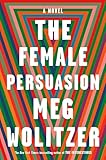 The Female Persuasion by Meg Wolitzer: Wolitzer is one of those rare novelists who is able to capture the zeitgeist. Her follow up to The Interestings, The Female Persuasion centers around Greer Kadetsky, who is a freshman in college when she meets Faith Frank, an inspiring feminist icon who ignites Greer’s passions. After graduation, Greer lands a job at Frank’s foundation and things get real. Wolitzer is a master weaver of story lines and in this novel she brings four together as the characters search for purpose in life and love. As the starred review in Publisher’s Weekly says, this novel explores, “what it is to both embrace womanhood and suffer because of it.” Amen sister. (Claire)
The Female Persuasion by Meg Wolitzer: Wolitzer is one of those rare novelists who is able to capture the zeitgeist. Her follow up to The Interestings, The Female Persuasion centers around Greer Kadetsky, who is a freshman in college when she meets Faith Frank, an inspiring feminist icon who ignites Greer’s passions. After graduation, Greer lands a job at Frank’s foundation and things get real. Wolitzer is a master weaver of story lines and in this novel she brings four together as the characters search for purpose in life and love. As the starred review in Publisher’s Weekly says, this novel explores, “what it is to both embrace womanhood and suffer because of it.” Amen sister. (Claire)
 The Recovering by Leslie Jamison: The bestselling author of The Empathy Exams brings us The Recovering, which explores addiction and recovery in America, in particular the stories we tell ourselves about addiction. Jamison also examines the relationship many well-known writers and artists had with addiction, including Amy Winehouse, Billie Holiday, Raymond Carver, David Foster Wallace, and more. The Recovering has received advance praise from Stephen King, Vivian Gornick, and Anne Fadiman. Chris Kraus described the The Recovering as “a courageous and brilliant example of what nonfiction writing can do.” (Zoë)
The Recovering by Leslie Jamison: The bestselling author of The Empathy Exams brings us The Recovering, which explores addiction and recovery in America, in particular the stories we tell ourselves about addiction. Jamison also examines the relationship many well-known writers and artists had with addiction, including Amy Winehouse, Billie Holiday, Raymond Carver, David Foster Wallace, and more. The Recovering has received advance praise from Stephen King, Vivian Gornick, and Anne Fadiman. Chris Kraus described the The Recovering as “a courageous and brilliant example of what nonfiction writing can do.” (Zoë)
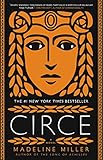 Circe by Madeline Miller: It took Miller 10 years to write her Orange Prize-winning debut novel, The Song of Achilles. Happily, we only had to wait another five for Circe, even more impressive when one considers that the novel’s story covers millennia. Here Miller again invokes the classical world and a massive cast of gods, nymphs, and mortals, but it’s all seen through the knowing eyes of Circe, the sea-witch who captures Odysseus and turns men into monsters. (Kaulie)
Circe by Madeline Miller: It took Miller 10 years to write her Orange Prize-winning debut novel, The Song of Achilles. Happily, we only had to wait another five for Circe, even more impressive when one considers that the novel’s story covers millennia. Here Miller again invokes the classical world and a massive cast of gods, nymphs, and mortals, but it’s all seen through the knowing eyes of Circe, the sea-witch who captures Odysseus and turns men into monsters. (Kaulie)
 America Is Not the Heart by Elaine Castillo: As we enter year two of the Donald Trump presidency, Castillo’s first novel challenges readers to look beyond the headlines to grasp the human dimension of America’s lure to immigrants in this big-hearted family saga about three generations of Filipina women who struggle to reconcile the lives they left behind in the Philippines with the ones they are making for themselves in the American suburbs. (Michael)
America Is Not the Heart by Elaine Castillo: As we enter year two of the Donald Trump presidency, Castillo’s first novel challenges readers to look beyond the headlines to grasp the human dimension of America’s lure to immigrants in this big-hearted family saga about three generations of Filipina women who struggle to reconcile the lives they left behind in the Philippines with the ones they are making for themselves in the American suburbs. (Michael)
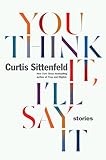 You Think It, I’ll Say It by Curtis Sittenfeld: Is Sittenfeld a serious literary novelist who dabbles in chick lit? Is she a writer of frothy beach reads who happens to have an MFA from Iowa? Do such distinctions still have any meaning in today’s fiction market? Readers can decide for themselves when Sittenfeld publishes her first story collection, after five novels that have ranged from her smash debut Prep to American Wife, her critically acclaimed “fictional biography” of former First Lady Laura Bush. (Michael)
You Think It, I’ll Say It by Curtis Sittenfeld: Is Sittenfeld a serious literary novelist who dabbles in chick lit? Is she a writer of frothy beach reads who happens to have an MFA from Iowa? Do such distinctions still have any meaning in today’s fiction market? Readers can decide for themselves when Sittenfeld publishes her first story collection, after five novels that have ranged from her smash debut Prep to American Wife, her critically acclaimed “fictional biography” of former First Lady Laura Bush. (Michael)
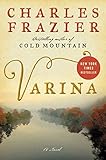 Varina by Charles Frazier: Returning to the setting of his NBA winning Cold Mountain, Frazier taps into the American Civil War, specifically the life of Varina Howell Davis, the teenage bride of Jefferson Davis, president of the Confederacy. In this personal tragedy set in an epic period of American history, Frazier examines how “being on the wrong side of history carries consequences” regardless of one’s personal degree of involvement in the offense. Something to think about. (Il’ja)
Varina by Charles Frazier: Returning to the setting of his NBA winning Cold Mountain, Frazier taps into the American Civil War, specifically the life of Varina Howell Davis, the teenage bride of Jefferson Davis, president of the Confederacy. In this personal tragedy set in an epic period of American history, Frazier examines how “being on the wrong side of history carries consequences” regardless of one’s personal degree of involvement in the offense. Something to think about. (Il’ja)
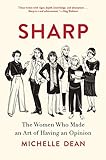 Sharp: The Women Who Made an Art of Having an Opinion by Michelle Dean: You’ve been reading Dean’s reviews and journalism for some time at The Nation, The Guardian, Buzzfeed, The New Yorker, Slate, Salon The New Republic, et alia. Winner of the 2016 NBCC’s Nona Balakian Citation for Excellence in Reviewing, Dean is debuting her first book with apt timing: Sharp features intertwining depictions of our most important 20th-century female essayists and cultural critics—Susan Sontag, Dorothy Parker, Hannah Arendt, Pauline Kael, Rebecca West, Janet Malcolm, Joan Didion, and others. A hybrid of biography, literary criticism, and cultural history, Sharp has been praised and starred by PW as “stunning and highly accessible introduction to a group of important writers.” (Sonya)
Sharp: The Women Who Made an Art of Having an Opinion by Michelle Dean: You’ve been reading Dean’s reviews and journalism for some time at The Nation, The Guardian, Buzzfeed, The New Yorker, Slate, Salon The New Republic, et alia. Winner of the 2016 NBCC’s Nona Balakian Citation for Excellence in Reviewing, Dean is debuting her first book with apt timing: Sharp features intertwining depictions of our most important 20th-century female essayists and cultural critics—Susan Sontag, Dorothy Parker, Hannah Arendt, Pauline Kael, Rebecca West, Janet Malcolm, Joan Didion, and others. A hybrid of biography, literary criticism, and cultural history, Sharp has been praised and starred by PW as “stunning and highly accessible introduction to a group of important writers.” (Sonya)
 How to Write an Autobiographical Novel by Alexander Chee: In addition to receiving a starred review—and being named a Top 10 Essay Collection of Spring 2018—by Publishers Weekly, Chee’s essay collection explores a myriad of topics that include identity, the AIDS crisis, Trump, tarot, bookselling, art, activism, and more. Ocean Vuong described the book as “life’s wisdom—its hurts, joys and redemptions—salvaged from a great fire.” (Zoë)
How to Write an Autobiographical Novel by Alexander Chee: In addition to receiving a starred review—and being named a Top 10 Essay Collection of Spring 2018—by Publishers Weekly, Chee’s essay collection explores a myriad of topics that include identity, the AIDS crisis, Trump, tarot, bookselling, art, activism, and more. Ocean Vuong described the book as “life’s wisdom—its hurts, joys and redemptions—salvaged from a great fire.” (Zoë)
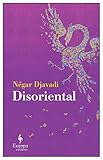 Disoriental by Négar Djavadi (translated by Tina Kover): From the waiting room of a French fertility clinic, a young woman revisits the stories of generations of her Iranian ancestors culminating in her parents, who brought her to France when she was 10. This French hit, published in English by Europa Editions, is called “a rich, irreverent, kaleidoscopic novel of real originality and power” by Alexander Maksik. (Lydia)
Disoriental by Négar Djavadi (translated by Tina Kover): From the waiting room of a French fertility clinic, a young woman revisits the stories of generations of her Iranian ancestors culminating in her parents, who brought her to France when she was 10. This French hit, published in English by Europa Editions, is called “a rich, irreverent, kaleidoscopic novel of real originality and power” by Alexander Maksik. (Lydia)
 Heads of the Colored People by Nafissa Thompson-Spires: A debut collection of stories exploring black identity and middle-class life in so-called “post-racial” America, with storylines ranging from gun violence and depression to lighter matters like a passive-aggressive fight between the mothers of school kids. George Saunders called these stories “vivid, fast, funny, way-smart, and verbally inventive.” (Lydia)
Heads of the Colored People by Nafissa Thompson-Spires: A debut collection of stories exploring black identity and middle-class life in so-called “post-racial” America, with storylines ranging from gun violence and depression to lighter matters like a passive-aggressive fight between the mothers of school kids. George Saunders called these stories “vivid, fast, funny, way-smart, and verbally inventive.” (Lydia)
 Black Swans by Eve Babitz: Until last year, Babitz was an obscure writer who chronicled hedonistic Los Angeles in the 1960s and 1970s. And then Counterpoint and NYRB Classics began reissuing her memoirs and autofiction, and word of Babitz’s unique voice began to spread. In The New Yorker, Jia Tolentino wrote, “On the page, Babitz is pure pleasure—a perpetual-motion machine of no-stakes elation and champagne fizz.” Novelist Catie Disabato asserts that Babitz “isn’t the famous men she fucked or the photographs she posed in. She is the five books of memoir and fiction she left behind for young women, freshly moved to Los Angeles, to find.” Black Swans is the latest in these recent reissues. Published in 1993, these stories/essays cover everything from the AIDS crisis to learning to tango. And, of course, the Chateau Marmont. (Edan)
Black Swans by Eve Babitz: Until last year, Babitz was an obscure writer who chronicled hedonistic Los Angeles in the 1960s and 1970s. And then Counterpoint and NYRB Classics began reissuing her memoirs and autofiction, and word of Babitz’s unique voice began to spread. In The New Yorker, Jia Tolentino wrote, “On the page, Babitz is pure pleasure—a perpetual-motion machine of no-stakes elation and champagne fizz.” Novelist Catie Disabato asserts that Babitz “isn’t the famous men she fucked or the photographs she posed in. She is the five books of memoir and fiction she left behind for young women, freshly moved to Los Angeles, to find.” Black Swans is the latest in these recent reissues. Published in 1993, these stories/essays cover everything from the AIDS crisis to learning to tango. And, of course, the Chateau Marmont. (Edan)
 Look Alive Out There by Sloane Crosley: Crosley, author of the New York Times bestselling essay collection I Was Told There’d Be Cake, returns with a new collection of essays. Ten years removed from her debut, Crosley takes on issues ranging from the pressures of fertility, to swingers, to confronting her own fame. Look Alive promises to be a worthwhile follow-up to Crosley’s 2011 collection How Did You Get This Number?. (Ismail)
Look Alive Out There by Sloane Crosley: Crosley, author of the New York Times bestselling essay collection I Was Told There’d Be Cake, returns with a new collection of essays. Ten years removed from her debut, Crosley takes on issues ranging from the pressures of fertility, to swingers, to confronting her own fame. Look Alive promises to be a worthwhile follow-up to Crosley’s 2011 collection How Did You Get This Number?. (Ismail)
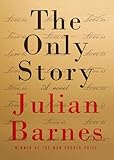 The Only Story by Julian Barnes: Give this to Barnes: the Man Booker laureate’s not afraid of difficult premises. In his 13th novel, a college student named Paul spends a lazy summer at a tennis club, where he meets a middle-aged woman with two daughters around his age. Soon enough, the two are having an affair, and a flash-forward to a much-older Paul makes clear it upended their lives. (Thom)
The Only Story by Julian Barnes: Give this to Barnes: the Man Booker laureate’s not afraid of difficult premises. In his 13th novel, a college student named Paul spends a lazy summer at a tennis club, where he meets a middle-aged woman with two daughters around his age. Soon enough, the two are having an affair, and a flash-forward to a much-older Paul makes clear it upended their lives. (Thom)
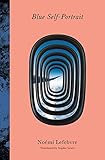 Blue Self-Portrait by Noémi Lefebvre (translated by Sophie Lewis): In this torrential inner monologue out from Oakland publisher Transit Books, a woman reflects on music, politics and her affair with a musician, a pianist obsessed with the 1910 self-portrait painted by Arnold Schoenberg, a haunting, blue-tinted work in which the composer’s“expression promised nothing positive for the art of the future, conveyed an anxiety for the future, looked far beyond any definition of the work of art or of the future.” (Matt)
Blue Self-Portrait by Noémi Lefebvre (translated by Sophie Lewis): In this torrential inner monologue out from Oakland publisher Transit Books, a woman reflects on music, politics and her affair with a musician, a pianist obsessed with the 1910 self-portrait painted by Arnold Schoenberg, a haunting, blue-tinted work in which the composer’s“expression promised nothing positive for the art of the future, conveyed an anxiety for the future, looked far beyond any definition of the work of art or of the future.” (Matt)
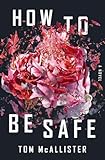 How to Be Safe by Tom McCallister: This novel, by the author of The Young Widower’s Handbook, is billed as We Need to Talk About Kevin meets Dept. of Speculation—those are two of my favorite books! Also? Tom McCallister…is a man! Although high school English teacher Anna Crawford is quickly exonerated after being named a suspect in a campus shooting, she nevertheless suffers intense scrutiny in the wake of the tragedy. As the jacket copy says, “Anna decides to wholeheartedly reject the culpability she’s somehow been assigned, and the rampant sexism that comes with it, both in person and online.” Of the book, novelist Amber Sparks writes, “It’s so wonderful—so furious and so funny and urgent and needed in this mad ugly space we’re sharing with each other.” Author Wiley Cash calls McCallister “an exceptionally talented novelist.” (Edan)
How to Be Safe by Tom McCallister: This novel, by the author of The Young Widower’s Handbook, is billed as We Need to Talk About Kevin meets Dept. of Speculation—those are two of my favorite books! Also? Tom McCallister…is a man! Although high school English teacher Anna Crawford is quickly exonerated after being named a suspect in a campus shooting, she nevertheless suffers intense scrutiny in the wake of the tragedy. As the jacket copy says, “Anna decides to wholeheartedly reject the culpability she’s somehow been assigned, and the rampant sexism that comes with it, both in person and online.” Of the book, novelist Amber Sparks writes, “It’s so wonderful—so furious and so funny and urgent and needed in this mad ugly space we’re sharing with each other.” Author Wiley Cash calls McCallister “an exceptionally talented novelist.” (Edan)
MAY
 Warlight by Michael Ondaatje: From internationally acclaimed, bestselling author of The English Patient and Divisidero among his other works, this new novel from Ondaatje is set in the decade after World War II. When their parents move to Singapore, 14-year-old Nathaniel and his older sister, Rachel, are left in London under the watchful eye of a mysterious figure called The Moth. As they become immersed in his eccentric circle of friends, they are both protected and educated in confusing ways. The mystery deepens when their mother returns months later without their father, but gives them no explanation. Years later, Nathaniel begins to uncover the story through a journey of facts, recollection, and imagination. If only Anthony Minghella were still with us to make the movie. (Claire)
Warlight by Michael Ondaatje: From internationally acclaimed, bestselling author of The English Patient and Divisidero among his other works, this new novel from Ondaatje is set in the decade after World War II. When their parents move to Singapore, 14-year-old Nathaniel and his older sister, Rachel, are left in London under the watchful eye of a mysterious figure called The Moth. As they become immersed in his eccentric circle of friends, they are both protected and educated in confusing ways. The mystery deepens when their mother returns months later without their father, but gives them no explanation. Years later, Nathaniel begins to uncover the story through a journey of facts, recollection, and imagination. If only Anthony Minghella were still with us to make the movie. (Claire)
 The Mars Room by Rachel Kushner: In her third novel, two-time National Book Award-finalist Kushner writes about a woman named Romy Hall who is serving two consecutive life sentences (plus six years) in a prison in California’s Central Valley. The year is 2003, and the Mars Room in the title refers to a strip club in San Francisco where Romy used to dance; according to the jacket copy, Kushner details “the deadpan absurdities of institutional living…with humor and precision.” George Saunders calls Kushner “a young master” and Robert Stone wrote that she is “a novelist of the very first order.” Check out this short excerpt published by Entertainment Weekly. (Edan)
The Mars Room by Rachel Kushner: In her third novel, two-time National Book Award-finalist Kushner writes about a woman named Romy Hall who is serving two consecutive life sentences (plus six years) in a prison in California’s Central Valley. The year is 2003, and the Mars Room in the title refers to a strip club in San Francisco where Romy used to dance; according to the jacket copy, Kushner details “the deadpan absurdities of institutional living…with humor and precision.” George Saunders calls Kushner “a young master” and Robert Stone wrote that she is “a novelist of the very first order.” Check out this short excerpt published by Entertainment Weekly. (Edan)
 Some Trick by Helen DeWitt: If you periodically spend afternoons sitting around wondering when you will get to read something new by DeWitt, this is your season. In May we get 13 stories from the brilliant writer who brought us The Last Samurai—one of the best books of this or any millennium—and the evilly good Lightning Rods. In this collection DeWitt will evidently apply her mordant virtuosity to territory ranging from statistics to publishing. (Lydia)
Some Trick by Helen DeWitt: If you periodically spend afternoons sitting around wondering when you will get to read something new by DeWitt, this is your season. In May we get 13 stories from the brilliant writer who brought us The Last Samurai—one of the best books of this or any millennium—and the evilly good Lightning Rods. In this collection DeWitt will evidently apply her mordant virtuosity to territory ranging from statistics to publishing. (Lydia)
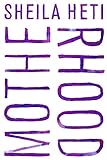 Motherhood by Sheila Heti: Heti’s previous two books have created and followed lines of inquiry—with Misha Glouberman she wrote a book of conversational philosophy, The Chairs Are Where People Go. Heti’s novel How Should a Person Be? is an early work of autofiction that delves deep into art-making and friendship. Some called it a literary form of reality TV, making James Wood’s backhanded assessment of the book as both “unpretentious” and “narcissistic” quite the unintentional compliment. Heti’s new novel Motherhood follows in a similar line of existential questioning—the narrator approaches the topic of motherhood, asking not when but if she should endeavor to become a mother at all. (Anne)
Motherhood by Sheila Heti: Heti’s previous two books have created and followed lines of inquiry—with Misha Glouberman she wrote a book of conversational philosophy, The Chairs Are Where People Go. Heti’s novel How Should a Person Be? is an early work of autofiction that delves deep into art-making and friendship. Some called it a literary form of reality TV, making James Wood’s backhanded assessment of the book as both “unpretentious” and “narcissistic” quite the unintentional compliment. Heti’s new novel Motherhood follows in a similar line of existential questioning—the narrator approaches the topic of motherhood, asking not when but if she should endeavor to become a mother at all. (Anne)
 That Kind of Mother by Rumaan Alam: “Just because something is natural doesn’t mean it’s easy.” Priscilla Johnson says those words to Rebecca Stone early in Alam’s novel. Rebecca’s just given birth to her son Jacob, and the novel’s first scene feels both dizzying and precise—a visceral reminder of life’s complex surprises. Priscilla is the hospital staffer who most calms Rebecca’s anxieties, so much that she asks Priscilla to be Jacob’s nanny. A few years later, Priscilla’s own pregnancy ends in heartbreak. Rebecca’s decision to adopt Andrew is complex: she loves and misses Priscilla, and dearly loves this boy, but is she ready for the reality of raising a black son as a white mother? Alam’s sharp narrative asides—lines like “Some percentage of the things she did for the children were actually for her”—carry such weight and truth that we trust his route toward the bigger question of the book: are we ever ready for the pain and joy that life delivers us? (Nick R.)
That Kind of Mother by Rumaan Alam: “Just because something is natural doesn’t mean it’s easy.” Priscilla Johnson says those words to Rebecca Stone early in Alam’s novel. Rebecca’s just given birth to her son Jacob, and the novel’s first scene feels both dizzying and precise—a visceral reminder of life’s complex surprises. Priscilla is the hospital staffer who most calms Rebecca’s anxieties, so much that she asks Priscilla to be Jacob’s nanny. A few years later, Priscilla’s own pregnancy ends in heartbreak. Rebecca’s decision to adopt Andrew is complex: she loves and misses Priscilla, and dearly loves this boy, but is she ready for the reality of raising a black son as a white mother? Alam’s sharp narrative asides—lines like “Some percentage of the things she did for the children were actually for her”—carry such weight and truth that we trust his route toward the bigger question of the book: are we ever ready for the pain and joy that life delivers us? (Nick R.)
 Adjustment Day by Chuck Palahniuk: Four years since publishing his last novel, Palahniuk returns in the era of fake news, obvious government corruption, and widespread despair. (It’s as though the protagonists in his most famous novels were right from the start.) In Adjustment Day, these themes weave together in the form of a mysterious day of reckoning orchestrated by an out of touch, aging group of elected officials. (Nick M.)
Adjustment Day by Chuck Palahniuk: Four years since publishing his last novel, Palahniuk returns in the era of fake news, obvious government corruption, and widespread despair. (It’s as though the protagonists in his most famous novels were right from the start.) In Adjustment Day, these themes weave together in the form of a mysterious day of reckoning orchestrated by an out of touch, aging group of elected officials. (Nick M.)
 Last Stories by William Trevor: Prior to his death in November 2016, Trevor told a friend that the book he was working on would be called Last Stories. That is this book—the last we will ever have from the Irish author. Six of the 10 stories included here have never been published before, and what preview would be sufficient? Perhaps just this: if the engine of accomplished fiction truly is empathy, then you will be hard pressed to uncover a finer practitioner of the core humanity that inspired and inspires this deliberate, and personal, epitaph. RIP. (Il’ja)
Last Stories by William Trevor: Prior to his death in November 2016, Trevor told a friend that the book he was working on would be called Last Stories. That is this book—the last we will ever have from the Irish author. Six of the 10 stories included here have never been published before, and what preview would be sufficient? Perhaps just this: if the engine of accomplished fiction truly is empathy, then you will be hard pressed to uncover a finer practitioner of the core humanity that inspired and inspires this deliberate, and personal, epitaph. RIP. (Il’ja)
 MEM by Bethany Morrow In this debut novel set in a speculative past, a Montreal-based scientist discovers a way to extract memories from people, resulting in physical beings, Mems, who are forced to experience the same memory over and over. Complications ensue when one of the Mems, Dolores Extract #1, begins to make and form her own memories. (Hannah)
MEM by Bethany Morrow In this debut novel set in a speculative past, a Montreal-based scientist discovers a way to extract memories from people, resulting in physical beings, Mems, who are forced to experience the same memory over and over. Complications ensue when one of the Mems, Dolores Extract #1, begins to make and form her own memories. (Hannah)
 And Now We Have Everything by Meaghan O’Connell: O’Connell’s memoir—her first book—is here to remedy the “nobody tells you what it’s really like” refrain of new mothers. Giving birth to her son in her 20s, after an unplanned pregnancy, O’Connell chronicles the seismic changes that happened to her body, routine, social life, and existential purpose before she knew what was coming. All the cool moms of literary twitter (including Edan!) are raving. (Janet)
And Now We Have Everything by Meaghan O’Connell: O’Connell’s memoir—her first book—is here to remedy the “nobody tells you what it’s really like” refrain of new mothers. Giving birth to her son in her 20s, after an unplanned pregnancy, O’Connell chronicles the seismic changes that happened to her body, routine, social life, and existential purpose before she knew what was coming. All the cool moms of literary twitter (including Edan!) are raving. (Janet)
 The Ensemble by Aja Gabel: A novel about art and friendship and the fraught world of accomplished musicians—four young friends who comprise a string quartet. Mat Johnson said Gabel’s novel “deserves a standing ovation.” For a taste of Gabel’s prose, read her Best American Essays-notable piece on grief and eating ortolans in France. (Lydia)
The Ensemble by Aja Gabel: A novel about art and friendship and the fraught world of accomplished musicians—four young friends who comprise a string quartet. Mat Johnson said Gabel’s novel “deserves a standing ovation.” For a taste of Gabel’s prose, read her Best American Essays-notable piece on grief and eating ortolans in France. (Lydia)
 The Lost Empress by Sergio De La Pava: De La Pava’s first novel, A Naked Singularity, was the rare self-published novel to receive critical acclaim, including the PEN/Bingham Prize. The Lost Empress is as ambitious as his first, a 672-page doorstopper that takes on both football and the criminal justice system. The novel has a large cast, but centers on two characters: Nina Gill, the daughter of the owner of the Dallas Cowboys, and presumed heir to the franchise; and Nuno DeAngeles, “a brilliant criminal mastermind,” who gets himself thrown into prison in order to commit a crime. (Hannah)
The Lost Empress by Sergio De La Pava: De La Pava’s first novel, A Naked Singularity, was the rare self-published novel to receive critical acclaim, including the PEN/Bingham Prize. The Lost Empress is as ambitious as his first, a 672-page doorstopper that takes on both football and the criminal justice system. The novel has a large cast, but centers on two characters: Nina Gill, the daughter of the owner of the Dallas Cowboys, and presumed heir to the franchise; and Nuno DeAngeles, “a brilliant criminal mastermind,” who gets himself thrown into prison in order to commit a crime. (Hannah)
 A Lucky Man by Jamel Brinkley: New York-bred writer Brinkley (and Year in Reading alum) delivers this anticipated debut story collection. Ranging from encounters on the New York subway to a young boy’s first encounter with the reality of racial hierarchy, these sensitive and probing stories promise to captivate. If you’ve read Brinkley’s title story “A Lucky Man” in A Public Space, then you know that he’s a talent to watch. (Ismail)
A Lucky Man by Jamel Brinkley: New York-bred writer Brinkley (and Year in Reading alum) delivers this anticipated debut story collection. Ranging from encounters on the New York subway to a young boy’s first encounter with the reality of racial hierarchy, these sensitive and probing stories promise to captivate. If you’ve read Brinkley’s title story “A Lucky Man” in A Public Space, then you know that he’s a talent to watch. (Ismail)
Belly Up by Rita Bullwinkel: Bullwinkel’s stories are fantastic and fabulist feats that (often) address our messy, cumbersome bodies in thrilling and imaginative ways. For example: in lieu of a bra, a man is hired to support a daughter’s breasts; a woman whose plastic surgeon, when fixing her eyes, leaves her with a turkey neck (not literally but); twin brothers Gleb and Oleg, surgeon and sculptor, live in a prison infirmary and perform a thumb transplant. A compelling new voice, Bullwinkel has had stories in Tin House, Guernica, and Noon. Her first book, the story collection Belly Up, will be published by A Strange Object. (Anne)
 The Pisces by Melissa Broder: You may know Broder because of her incredible So Sad Today tweets. If you do, you won’t be surprised to hear about her novel, The Pisces, which follows a Ph.D student in love with a Californian merman. The student, Lucy, has a breakdown after nine years of grad school, which compels her Angeleno sister to invite her to dogsit at her place. On the beach, a merman appears, and Lucy embarks on a romance that seems impossible. (Thom)
The Pisces by Melissa Broder: You may know Broder because of her incredible So Sad Today tweets. If you do, you won’t be surprised to hear about her novel, The Pisces, which follows a Ph.D student in love with a Californian merman. The student, Lucy, has a breakdown after nine years of grad school, which compels her Angeleno sister to invite her to dogsit at her place. On the beach, a merman appears, and Lucy embarks on a romance that seems impossible. (Thom)
JUNE
 Kudos by Rachel Cusk: When I first encountered Cusk’s writing in the mid-aughts I wrote her off as an author of potentially tedious domestic drama. I was woefully wrong. It’s true Cusk is a chronicler of the domestic: she is as known for her memoirs of motherhood and divorce as she is for her novels, but her writing is innovative, observant, and bold. The New Yorker declared that with the trilogy that her latest novel Kudos completes, Cusk has “renovated” the novel, merging fiction with oral history, retooling its structure. Cusk has said: “I’ve never treated fiction as a veil or as a thing to hide behind, which perhaps was, not a mistake exactly, but a sort of risky way to live.” (Anne)
Kudos by Rachel Cusk: When I first encountered Cusk’s writing in the mid-aughts I wrote her off as an author of potentially tedious domestic drama. I was woefully wrong. It’s true Cusk is a chronicler of the domestic: she is as known for her memoirs of motherhood and divorce as she is for her novels, but her writing is innovative, observant, and bold. The New Yorker declared that with the trilogy that her latest novel Kudos completes, Cusk has “renovated” the novel, merging fiction with oral history, retooling its structure. Cusk has said: “I’ve never treated fiction as a veil or as a thing to hide behind, which perhaps was, not a mistake exactly, but a sort of risky way to live.” (Anne)
 A Suitable Girl by Vikram Seth: Reportedly delayed by writer’s block brought on by a breakup, Seth has finally produced the much-anticipated sequel to his international smash of 1993, A Suitable Boy. That novel, a gargantuan epic set in post-independence India in the 1950s, was a multi-family saga built around the pursuit of a suitable husband in a world of arranged marriages. In the “jump sequel,” the original protagonist is now in her 80s and on the prowl for a worthy bride for her favorite grandson. Though best-known for A Suitable Boy, the versatile Seth has produced novels, poetry, opera, a verse novel, a travel book, and a memoir. (Bill)
A Suitable Girl by Vikram Seth: Reportedly delayed by writer’s block brought on by a breakup, Seth has finally produced the much-anticipated sequel to his international smash of 1993, A Suitable Boy. That novel, a gargantuan epic set in post-independence India in the 1950s, was a multi-family saga built around the pursuit of a suitable husband in a world of arranged marriages. In the “jump sequel,” the original protagonist is now in her 80s and on the prowl for a worthy bride for her favorite grandson. Though best-known for A Suitable Boy, the versatile Seth has produced novels, poetry, opera, a verse novel, a travel book, and a memoir. (Bill)
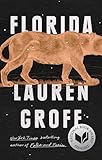 Florida by Lauren Groff: After collecting fans like Barack Obama with her bestselling novel Fates and Furies, Groff’s next book is a collection of short stories that center around Florida, “the landscape, climate, history, and state of mind.” Included is ”Dogs Go Wolf,” the haunting story that appeared in The New Yorker earlier in the year. In a recent interview, Groff gave us the lay of the land: “The collection is a portrait of my own incredible ambivalence about the state where I’ve lived for twelve years...I love the disappearing natural world, the sunshine, the extraordinary and astonishing beauty of the place as passionately as I hate the heat and moisture and backward politics and the million creatures whose only wish is to kill you.” (Claire)
Florida by Lauren Groff: After collecting fans like Barack Obama with her bestselling novel Fates and Furies, Groff’s next book is a collection of short stories that center around Florida, “the landscape, climate, history, and state of mind.” Included is ”Dogs Go Wolf,” the haunting story that appeared in The New Yorker earlier in the year. In a recent interview, Groff gave us the lay of the land: “The collection is a portrait of my own incredible ambivalence about the state where I’ve lived for twelve years...I love the disappearing natural world, the sunshine, the extraordinary and astonishing beauty of the place as passionately as I hate the heat and moisture and backward politics and the million creatures whose only wish is to kill you.” (Claire)
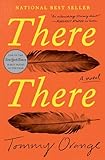 There There by Tommy Orange: Set in Oakland, Orange’s novel describes the disparate lives that come together for the Oakland Powwow and what happens to them when they get there. In an extraordinary endorsement, Sherman Alexie writes that Orange’s novel “is truly the first book to capture what it means to be an urban Indian—perhaps the first novel ever to celebrate and honor and elevate the joys and losses of urban Indians. You might think I’m exaggerating but this book is so revolutionary—evolutionary—that Native American literature will never be the same.” (Lydia)
There There by Tommy Orange: Set in Oakland, Orange’s novel describes the disparate lives that come together for the Oakland Powwow and what happens to them when they get there. In an extraordinary endorsement, Sherman Alexie writes that Orange’s novel “is truly the first book to capture what it means to be an urban Indian—perhaps the first novel ever to celebrate and honor and elevate the joys and losses of urban Indians. You might think I’m exaggerating but this book is so revolutionary—evolutionary—that Native American literature will never be the same.” (Lydia)
 Upstate by James Wood: It’s been 15 years since Wood’s first novel, The Book Against God, was published. What was Wood doing in the meantime? Oh, just influencing a generation of novelists from his perch at The New Yorker, where his dissecting reviews also functioned as miniature writing seminars. He also penned a writing manual, How Fiction Works. His sophomore effort concerns the Querry family, who reunite in upstate New York to help a family member cope with depression and to pose the kinds of questions fiction answers best: How do people get through difficulty? What does it mean to be happy? How should we live our lives? (Hannah)
Upstate by James Wood: It’s been 15 years since Wood’s first novel, The Book Against God, was published. What was Wood doing in the meantime? Oh, just influencing a generation of novelists from his perch at The New Yorker, where his dissecting reviews also functioned as miniature writing seminars. He also penned a writing manual, How Fiction Works. His sophomore effort concerns the Querry family, who reunite in upstate New York to help a family member cope with depression and to pose the kinds of questions fiction answers best: How do people get through difficulty? What does it mean to be happy? How should we live our lives? (Hannah)
 The Great Believers by Rebecca Makkai: This third novel from the acclaimed author of The Borrower and The Hundred-Year House interlaces the story of an art gallery director whose friends are succumbing to the AIDS epidemic in 1980s Chicago with a mother struggling to find her estranged daughter 30 years later in contemporary Paris. “The Great Believers is by turns funny, harrowing, tender, devastating, and always hugely suspenseful,” says Margot Livesey, author of Mercury. (Michael)
The Great Believers by Rebecca Makkai: This third novel from the acclaimed author of The Borrower and The Hundred-Year House interlaces the story of an art gallery director whose friends are succumbing to the AIDS epidemic in 1980s Chicago with a mother struggling to find her estranged daughter 30 years later in contemporary Paris. “The Great Believers is by turns funny, harrowing, tender, devastating, and always hugely suspenseful,” says Margot Livesey, author of Mercury. (Michael)
 Good Trouble by Joseph O’Neill: Frequent New Yorker and Harper’s readers will know that O’Neill has been writing a lot of short fiction lately. With the new Good Trouble, the Netherland author now has a full collection, comprised of 11 off-kilter, unsettling stories. Their characters range from a would-be renter in New York who can’t get anyone to give him a reference to a poet who can’t decide whether or not to sign a petition. (Thom)
Good Trouble by Joseph O’Neill: Frequent New Yorker and Harper’s readers will know that O’Neill has been writing a lot of short fiction lately. With the new Good Trouble, the Netherland author now has a full collection, comprised of 11 off-kilter, unsettling stories. Their characters range from a would-be renter in New York who can’t get anyone to give him a reference to a poet who can’t decide whether or not to sign a petition. (Thom)
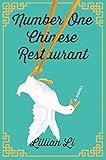 Number One Chinese Restaurant by Lillian Li: A family chronicle, workplace drama, and love story rolled into one, Li’s debut chronicles the universe of the Beijing Duck House restaurant of Rockville, Md., run by a family and long-time employees who intertwine in various ways when disaster strikes. Lorrie Moore raves, “her narratives are complex, mysterious, moving, and surprising.” (Lydia)
Number One Chinese Restaurant by Lillian Li: A family chronicle, workplace drama, and love story rolled into one, Li’s debut chronicles the universe of the Beijing Duck House restaurant of Rockville, Md., run by a family and long-time employees who intertwine in various ways when disaster strikes. Lorrie Moore raves, “her narratives are complex, mysterious, moving, and surprising.” (Lydia)
 SICK by Porochista Khakpour: In her much anticipated memoir SICK, Khakpour chronicles her arduous experience with illness, specifically late-stage Lyme disease. She examines her efforts to receive a diagnosis and the psychological and physiological impact of being so sick for so long, including struggles with mental health and addiction. Khakpour’s memoir demonstrates the power of survival in the midst of pain and uncertainty. (Zoë)
SICK by Porochista Khakpour: In her much anticipated memoir SICK, Khakpour chronicles her arduous experience with illness, specifically late-stage Lyme disease. She examines her efforts to receive a diagnosis and the psychological and physiological impact of being so sick for so long, including struggles with mental health and addiction. Khakpour’s memoir demonstrates the power of survival in the midst of pain and uncertainty. (Zoë)
 Fight No More by Lydia Millet: Millet’s 2010 collection Love in Infant Monkeys was a Pulitzer Prize finalist. Eight years later she’s released another collection of stories arranged around a real estate broker and their family as they struggle to reconnect. Millet’s satire is well-known for it’s sharp brutality—and its compassionate humanity. Both sides are on full display here. (Kaulie)
Fight No More by Lydia Millet: Millet’s 2010 collection Love in Infant Monkeys was a Pulitzer Prize finalist. Eight years later she’s released another collection of stories arranged around a real estate broker and their family as they struggle to reconnect. Millet’s satire is well-known for it’s sharp brutality—and its compassionate humanity. Both sides are on full display here. (Kaulie)
 Tonight I’m Someone Else by Chelsea Hodson: Examining the intersection of social media and intimacy, the commercial and the corporeal, the theme of Hodson’s essay collection is how we are pushed and pulled by our desire. The Catapult teacher’s debut has been called “racingly good…refreshing and welcome” by Maggie Nelson. (Tess)
Tonight I’m Someone Else by Chelsea Hodson: Examining the intersection of social media and intimacy, the commercial and the corporeal, the theme of Hodson’s essay collection is how we are pushed and pulled by our desire. The Catapult teacher’s debut has been called “racingly good…refreshing and welcome” by Maggie Nelson. (Tess)
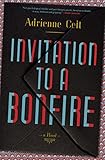 Invitation to a Bonfire by Adrienne Celt: On the heels of her critically praised debut, The Daughters, Celt gives us a love-triangle story that, according to the publisher, is “inspired by the infamous Nabokov marriage, with a spellbinding psychological thriller at its core.” The protagonist is a young Russian refugee named Zoya who becomes entangled with her boarding school’s visiting writer, Leo Orlov, and his imperious wife, Vera. Our own Edan Lepucki praised the novel as “a sexy, brilliant, and gripping novel about the fine line between passion and obsession. I am in awe of Celt’s mastery as a prose stylist and storyteller; I can’t stop thinking about this amazing book.” (Sonya)
Invitation to a Bonfire by Adrienne Celt: On the heels of her critically praised debut, The Daughters, Celt gives us a love-triangle story that, according to the publisher, is “inspired by the infamous Nabokov marriage, with a spellbinding psychological thriller at its core.” The protagonist is a young Russian refugee named Zoya who becomes entangled with her boarding school’s visiting writer, Leo Orlov, and his imperious wife, Vera. Our own Edan Lepucki praised the novel as “a sexy, brilliant, and gripping novel about the fine line between passion and obsession. I am in awe of Celt’s mastery as a prose stylist and storyteller; I can’t stop thinking about this amazing book.” (Sonya)









